#in which i continue to ignore arthurian legend
Explore tagged Tumblr posts
Text
more gsa family (+refs)
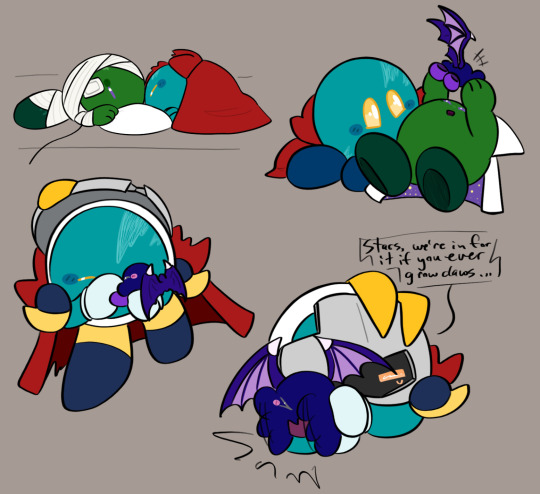
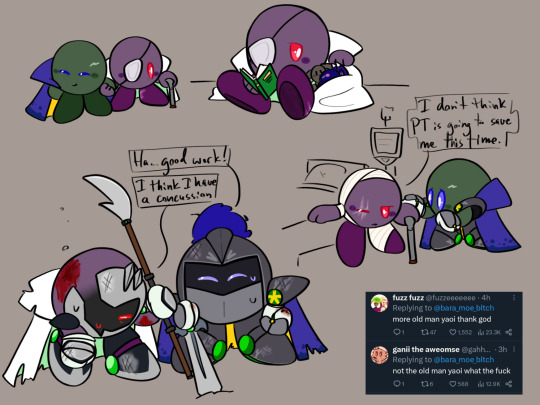
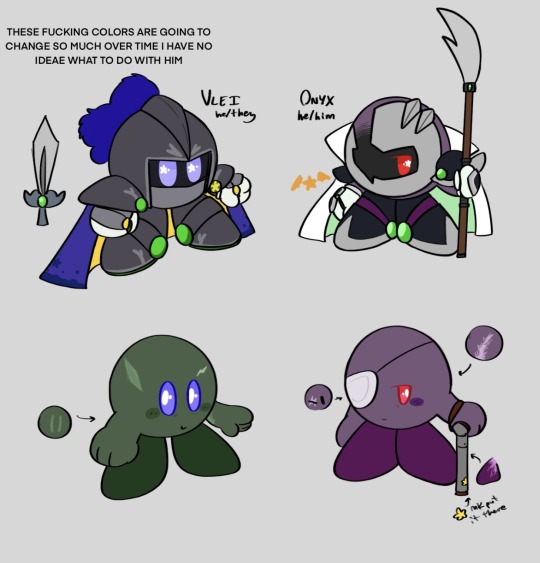
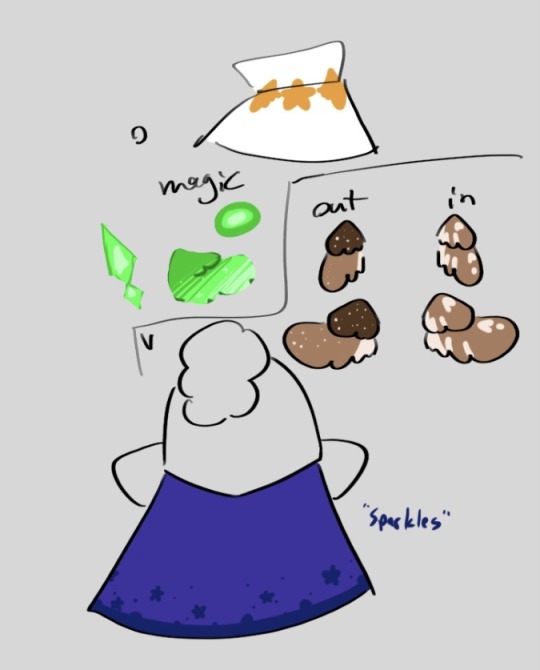
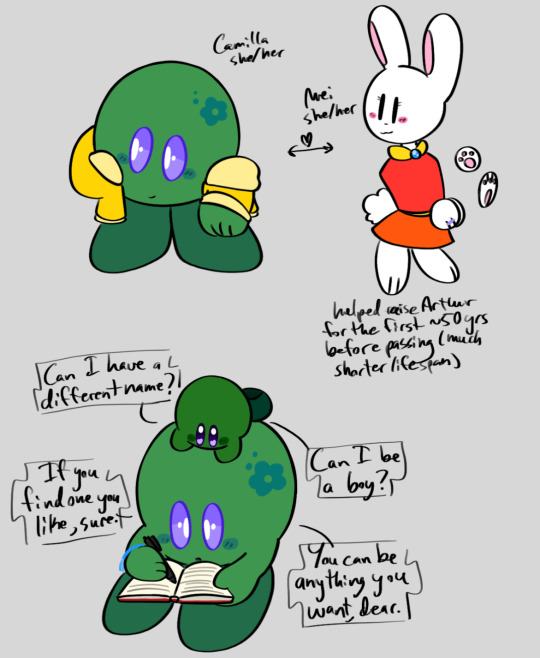
#in which i continue to ignore arthurian legend#GBRGHAA I JUST REALIZED I FUCKED UP THE CANE HAND IN TWO OF THESE JT SHOULD BE IN HIS RIGHT#IT WAS ONLY INTENTIONAL IN THE REF NOOO#kirby#kirby right back at ya#meta knight#sir arthur#sir nonsurat#galaxy soldier army#kirby oc#rhynsocs#rhyn's art#don't worry about the bandages in that first one arthur may have been struck by lightning a few hours prior#anyway these guys have been in the brain workshop for *checks calendar* a year#so i figured it was about time to bring them back#i posted about them once in the winter when onyx was still halberd lol#their colors are very subject to change since these redesigns are fairly recent#but i'm mostly happy with them#not vlei's though i have no idea what to do with him yet
64 notes
·
View notes
Text
The Masks of nobility- Chapter 6
Henry ached all over — his neck bruised from Hans’s attentions, and his arse not faring much better. Ever since discovering his wife’s disinterest, Hans — the devil Henry called his own — had become a man possessed. No restraint, no reason, no peace. Not even when surrounded by nobles, putting on the polished display of a dutiful husband. True to his word, Hans and Jitka spent their evenings talking — about flowers, tapestries, saints. Then Hans would take his leave, returning to Henry’s arms.
During public events, Hans still found ways to torment him — whispering filth into his ear, pushing Henry’s limits with every scandalous word. And by the time the festivities ended, Henry’s self-control was well and truly gone. They’d taken their fill of each other in corners of the castle not meant for such things — hallways, storage rooms, even once behind the altar of the chapel. Sense had deserted them… not that they’d started with much.
Yet last night had shifted something.
The bride’s family announced they would soon return to their lands, and Jitka dropped her glass, startling Hans enough to leap up, cursing under his breath as wine stained his hose. He tried to conceal his annoyance — Henry knew he’d hear all about it that night. But it was Jitka’s expression that caught Henry. Loss. Fear. Confusion. He knew that look — it had once been his. When her family left, she’d lose her home for a marriage she never wanted. It was a woman’s lot, aye, but he’d never stopped to think how cruel a turn it could be.
So today, Henry sought her out.
When he’d lost everything. Hans, and Theresa’s friendship their kindness and friendship has saved him.
Perhaps he could return the favor now. After all, Hans had said, more than once, “Christ, Henry, if we weren’t lovers, I do believe you’d rather like Jitka.” Hans had chuckled, lying in Henry’s arms. “The irony’s not lost on me — she’s got your same steadfastness. In another time, you two would’ve been firm friends.” He’d meant it kindly, but Henry had felt a pang of jealousy, ashamed to admit it.
He found Jitka’s ladies-in-waiting in a blasted embroidery circle, gossiping like the hens they were. Jitka sat apart from them, quietly stitching alone on the grass. Henry strode past the women, ignoring their wide-eyed glances, and stopped behind her. She was focused — didn’t even notice his approach. Hans had mentioned that about her before — once she set her mind to something, the world faded.
She looked up, startled. “Ah, Sir Henry,” she said politely, voice steady despite her swollen eyes. She had been weeping.
“I’m no lord, milady. Just Henry will do.”
She dipped her head, noting it. Henry fidgeted. He’d never tried to befriend a lover’s wife before — new territory entirely. She gestured beside her.
“Would you like to sit… I mean, Just Henry,” she added, a small quirk to her lips.
Henry smiled, grateful for the easing of tension. He sat next to her in the grass, sunlight warm against their backs.
“What are you sewing, milady?”
She raised a brow, as if surprised by his interest. “A gift. A handkerchief. According to the clucking hens, it’s proper to give one to someone you care for.”
“For Sir Hans?” Henry asked.
She continued stitching, eyes on her work. “I believe that was their intent, but I plan to send it to a friend in Prague.”
Henry couldn’t help the small flicker of relief that passed through him. “Your friend’s lucky, milady.”
She glanced up, catching his look. “I believe, Just Henry, Sir Capon would appreciate one from you far more than from me. You know him better. All I know is his fascination with Arthurian legends — which he so devoutly displayed during our vows.”
Henry blinked. Did she know? No… she was innocent, naïve of the world. She couldn’t.
As he mulled it over, she placed a hoop of material and thread in his lap.
“I’ll teach you.”
“Milady, I don’t—”
She waved a finger, dismissing his protest with the certainty only noble blood could muster. “Sir Capon says you’re a blacksmith by trade — and very skilled enough for him to talk for hours about it. Learning a new craft will be no trouble.”
Henry sighed, self-conscious of his large hands next to her delicacy.
“Don’t worry — skills like mine were honed over years of boredom, avoiding idle chatter.” She cast a look toward the circle of gossiping women.
Henry tried. His fingers were clumsy at first, but with her guidance, he began to get the hang of it. He heard whispering. Laughter? Jitka shot them a look that could freeze a stream, and the silence returned.
“Perhaps if you’d stop sticking your tongue out when concentrating, they wouldn’t laugh,” she said, tone matter-of-fact.
He chuckled, cheeks red. She helped him stitch a little bird — a dove. They sat for hours, the ladies eventually retreating indoors, leaving them in peace. It wasn’t proper, but Henry didn’t mind.
“They don’t treat me as lady of the castle,” Jitka said softly, her voice tinged with something unspoken. “Despite my husband’s pretence of favour.”
Henry looked up, sensing the shift.
“They say I’ll catch pox. Because he’s… debauched,” she murmured, eyes down.
Henry’s blood boiled. Hans might have been a bastard once, but to hear such filth — such disrespect — enraged him.
She kept sewing, gesturing for him to do the same. “Two of them are bedding Hanush. One was his mistress. They report our movements — mine and Sir Capon’s. I don’t know why. But you might.”
Henry understood. This was more than gossip — it was a warning. He nodded.
Her smile returned, washing away the weight of their words. “Thank you, Just Henry. I enjoyed today Henry realised Just Henry was here to stay. You’re a quick learner.” She eyed his clumsy dove with amusement. “He looks irritated.”
Henry scratched his head “Perhaps his wife’s a witch.”
She laughed — a genuine giggle — and held up her embroidery, pulling it from the hoop. The cloth was long and thin — a scarf? Decorated with dogs. Familiar dogs.
“Mutt?! Milady, is this for me?”
She smiled warmly. “Thank you for your company, and for being a good student. Perhaps it will cover that irritation on your neck… do you need a balm? I have several. George used them often after… training sessions.”
Henry flushed red, and despite himself, laughed. Perhaps… perhaps they could be friends.
---
I'm meant to be studying but now I can't help myself thank you @die-sphinx for inspiration I love the comments and feedback.
Also I have decided Henry had been knighted as 'Just Henry'
78 notes
·
View notes
Text
When done in good faith, I support haters and criticism of fellow writers/translators. But I draw the line at whatever this is...
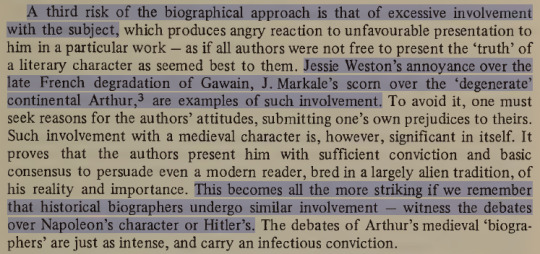
The Character of King Arthur in Medieval Literature by Rosemary Morris
Rosemary Morris wrote this whole book about her distaste for King Arthur. Yet the introduction throws Jessie Weston and Jean Markale to the wolves for their favoritism of Gawain and Arthur. The books in question are The Legend of Sir Gawain by Jessie Weston and Le Roi Arthur et la Société Celtique by Jean Markale. I take great issue with that. Chiefly because they're both entitled to their opinions which aren't even controversial. Most people gravitate away from Gawain and Arthur’s portrayals in the Prose Tristan and Post-Vulgate. For all the funny parts and new characters those texts introduce, they just really suck. And Arthurian Legend as a whole works best if Gawain is morally nuanced and Arthur a successful, beloved king. Why else would anybody follow him or adventure so fiercely in his name? Where is the tragedy in the fall of a kingdom run by a tyrant and his evil nepo nephews? Weston’s and Markale’s books aren't exactly presenting outlandish arguments.
And it’s all fiction. Likening a passion for Medieval literature to biographers examining the character of real life Adolf Hilter is so ghoulish I don't even know what else to say about that. Gawain is just a character, man, come on. “Ignoring” his “crimes” isn’t real because the crimes aren’t real. Rosemary Morris’s book’s whole message says way more about her own character than it does Jessie Weston, whom I have a lot of respect for. Weston contributed many translations to the public in the interest of spreading accessible Arthuriana. Dutch Morien, German Tristan and Isolde by Gottfried von Straßberg, French Lanval and Bisclavret, Middle English Sir Gawain and The Green Knight. Weston bent over backwards to translate as much as possible and publish to the everyday reader. I won’t hear a word against her.
According to Rosemary Morris, it’s unprofessional to display “excessive involvement” (read: preferences) for certain characterizations and favor the authors who provided them. She seems to believe one must remain objective about fiction, like the characters need be taken as a whole or not at all, the way you would a real life person. She simultaneously lumps Weston and Markale together as imitation “biographers” for their pointed interest in the subject while also chastising their enthusiasm for honorable Gawain and effectual Arthur. Unless you're her, apparently. She proceeds to cherry pick texts to illustrate her points while writing off alternatives as outliers (such as Perlesvaus's wifeguy Arthur), going so far as to blatantly misrepresent the Welsh tradition and ignore the entirety of Medieval German literature, both of which present a multitude of positive Arthur portrayals.
So it appears to me that Morris not only hates Arthur, but harbors a disdain for her fellow writers based solely on innocuous differences of opinion. It doesn’t only apply to modern authors either. She claims Medieval authors engage in doublethink while writing a version of Arthur to their own liking rather than transcribing what came before.
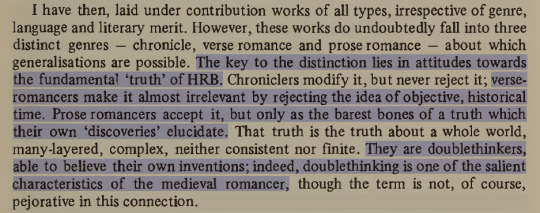
Referring to the creative process and localizing Medieval authors did while writing their contributions to the Arthurian literary tradition as "doublethink" is foul. Hartmann von Aue was not engaging in some weird delusional dissonance when he wrote Iwein for his German audience based on Chrétien’s Yvain. Trying to backpedal at the end doesn't negate that Morris chose to use the word multiple times. It’s disrespectful at best and insidious at worst.
Morris also seems to believe that any narrative which doesn't follow through to the fall of Camelot is truncated and therefore lesser.

Knight of the Cart is not "incomplete at both ends." Wild thing to say while Perceval Story of the Grail is legitimately cut off mid sentence and comes with four continuations. But evidentially, short stories or poems of an isolated story within the greater Arthurian narrative aren't short because that's what the author wanted to write, no, they're like that because the authors were too lazy or stupid to "develop" their own narratives further. Who let Rosemary Morris publish this? In addition to the rancid opinions about her fellow creators, she flat out misrepresents the truth.

This is gross. This is untrue. Plenty of people care about Gwalchmai on his own. While I won't argue Eliwlod is "prominent," Gwalchmai certainly is. The plots of several The Mabinogion stories fall apart without his continuation. But of course, this doesn't support Rosemary Morris's argument, which is that nobody likes Arthur.

More falsehoods. Yvain is one of Arthur's generals in the Vulgate. During the war with Galehaut, Gawain loses in battle and nearly dies out there on the field. It's Yvain that retrieves him and brings him back safely to Arthur. From there, Yvain continues leading armies in Arthur's name. While it's true Gawain is more consistently mentioned as a nephew of Arthur than Yvain, citing that as a basis to argue nobody is close to Arthur is a wild stretch. Furthermore saying that Yvain's role in Medieval literature as it relates to Arthur is "not humanly significant" is crazy.

Lies then a self own. The uncle-nephew bonds (even if unstated or "unofficial") between Arthur and Yvain aren't hard to find or analyze.
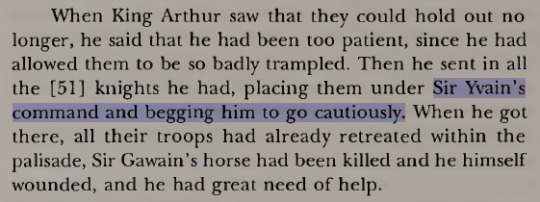
Lancelot Part II
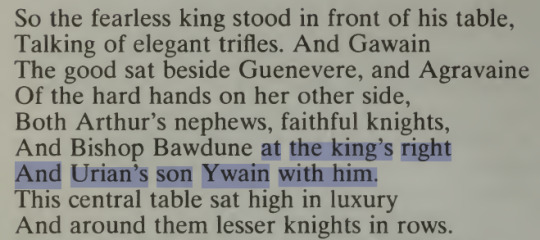
Sir Gawain and the Green Knight
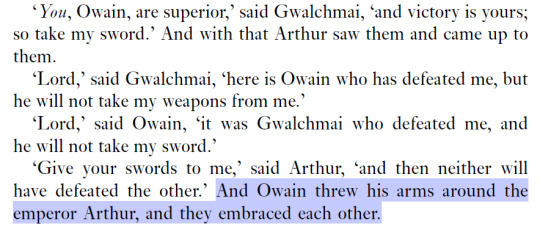
The Lady of the Well
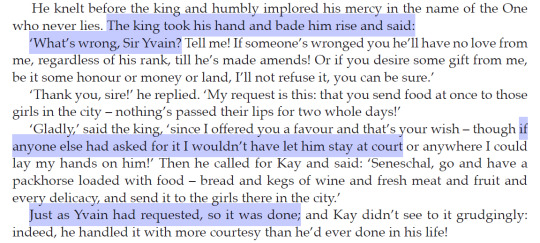
The First Continuation
I mean really how hard is it to find scenes in which Arthur and Yvain display a mutual affection and shows Yvain's high office in Arthur's court alongside his cousins, the sons of Morgause? He didn't get that randomly. Hard to analyze.... don't make me laugh.
Anyway I think Rosemary Morris is a hack. What do you think?
#arthuriana#arthurian legend#arthurian literature#arthurian mythology#welsh mythology#king arthur#rosemary morris#jessue weston#jean markale#sir gawain#gwalchami#sir yvain#sir owain#quotes#my post
32 notes
·
View notes
Note
I think I can get behind your first bullet! My issue was regarding the label and moral condemnation, not arguing with the effects, which, yeah, naturally that can be stressful! And I also like that it’s not insisting it will be stressful no matter what; some people are oblivious or impervious enough to handle short periods of the described behavior. But effects aren’t enough to condemn a person of "abuse", imo. I think it's enough to just talk about how it will stress people out or make the person very difficult to be around.
Having both been and been around people who've been like that, I don't think the issue is with concrete vs abstract examples. I think it is... well, a very small part the fact that you disliked Maxim XD not to victim-blame*! But mostly the fact that I rather liked the narrator from the start and never changed my opinion on this, and was very frustrated with Maxim the first time he lost his temper with her (when he was all "You can walk home, bitch!" because of her low self-esteem, which was messed up, and he didn't even have the excuse of being triggered!), and also during his proposal, when he was RIDICULOUSLY condescending and all "you know very little and understand even less", and the way he calls her a "child" and patronizes her throughout. But it's also possible that part of this was because Maxim seemed so Proper and polite when we first met him (tolerating Mrs. Van Hopper's gaffes), and the narrator compared him to someone out of Arthurian legends, that maybe I expected a lot better of him and that's why his flaws hit so much harder than they otherwise might have.
But I feel like Maxim is trying to eat his cake and have it too with the narrator, where he sees her as a silly child sometimes and likes the guilelessness and honesty and youthfulness, and will explicitly insult her ignorance, but also wants her to be the more emotionally put-together one so that he can have his secret ~memories~ and cite them as good reasons for brooding or yelling or throwing temper tantrums without ever telling her anything about them. Like I said, he's a Gothic Man.
But, just to be clear, this isn't affecting my enjoyment at all! I don't think I'd like the book better if Maxim were better-behaved. I'm having fun hating on him! But I do appreciate and welcome non-spoilery insights if I'm being unjustified in my criticisms or ignoring certain contexts for his behaviors! I know everyone is allowed to hate on characters for no good reason if they want, but I want to have GOOD reasons for wanting Maxim to fall off a cliff.
That's fair! And THANK YOU for the heads up! And I suppose that's fair - the narrator should be someone who looks a bit generic and not noticeably pretty. Like a lot of extras in British TV, maybe. Since there's no description, there's no way to do it wrong, exactly, either.
That is FASCINATING and I'm very glad that the fic writers have not left us disappointed!! After I made the post about Robert Jordan, I did go on AO3 to see if anyone had written a version where the extremely evil messed-up orgy-having queens had stayed in charge and just continued on their evil way, but unfortunately there did not seem to be any fics for that book.
Having reached that chapter while awake, it turns out I was not wrong! The narrator really DID describe Mrs. Danvers's grief in a very sapphic, intimate way!! She knew Rebecca's voice and laugh and how she walked, and what her eyes looked like, and she couldn't help but resent someone else taking Rebecca's place... the YEARNING! And, of course, because the narrator is the one thinking of this, I can certainly see De Winter 4 De Winter (1x2? De Winters? Des Winters? Blizzard??) being a lot more shippable for this as well.
I was wrong about Frith - he never had a warm-and-fuzzy conversation with the narrator. The parts I thought came from Frith came from Frank Crawley, actually (both Fr- names, so that makes sense!), but on listening while conscious, the conversation made me not fully trust what he was saying, for whatever reason. I'm really glad the narrator got that bit of support, but it wasn't nearly as touching as I'd thought while asleep, and it turns out my dreaming mind did put a bunch of things in there that weren't in the text.
This is also very true - he probably did want to marry someone as different from Rebecca as possible! But I do wonder if there are ways of being different enough for him while still being prepared... I'm sure the fic writers have takes on this, though, so I shall wait and see!
Again, emphasizing that I love the narrator and do not think most of the things happening are actually her fault at all! I'm just curious about how, hypothetically, Rebecca would have tried to haunt someone similar-yet-different from her.
I appreciate that!! While I'll make fun of an author for having a thinly veiled fetish, that's because it's funny, not because I think it's possible to say with any degree of certainty. Maybe they're drawing from their predecessors, at least one of whom had that fetish. Maybe they're asexually fascinated by a form of degradation. Anyway, I do want to make more of an effort to avoid trying to draw conclusions about a writer from their work - if they actively shared something about their past and it informs their work, that's certainly helpful and can inform the understanding/analysis, but writing something that makes me uncomfortable doesn't mean an author is a flawed person in a relevant way. It's possible! All things are possible! But, like you said, the book is *supposed* to be haunting/disturbing, I think the discomfort makes sense. The narrator is also super unsettled by that encounter. I did find it interesting, though ^^; that we had very different reasons for being so deep-down squicked out. And I didn't actually realize that stereotype was so common re: deceitful idiots! But that makes sense - even today there's the perception that people with disabilities might be faking it to prey on others' sympathy. But then again, Maxim's the one who says it, and Maxim does a great deal of things we don't like, so I don't have to accept him as a mouthpiece for Du Maurier.
I hadn't thought of Maxim's distractedness or subconscious "I want her to mess up so that's less like Rebecca"! Those are very interesting and excellent points. I did suspect the unexamined privilege bit, where this was all so second-nature to him that it would never have occurred to him that the 'dear little thing' (love that btw, that's so accurate) wouldn't know it just from osmosis from spending time with him. But also... you're right about the distracted/self-centeredness. Definitely also possible contributing factors.
I have no arguments with the Doylesian explanation! We love to see our new bride so wrongfooted and making all of the gaffes!
I didn't realize it was common for wives to be expected to handle all the social stuff themselves while the husbands did Big Important Things! I think my perception might've come from the aristocratic ennui where men just sat around at gaming tables and hardly did anything, but that might've been a younger son thing; for all I know Maxim has genuinely important things to do. Hmm.
Extremely fair re: Nick! I do think everything else he did seemed very sweet and endearing; which was what made the lack of warning so jarring! I thought maybe that was another "I didn't know how to explain all this because I'm so used to it" situation, and that maybe he expected to deal with something similar with his girlfriend's family; but then again, he knew his girlfriend's family wasn't like that. Maybe he thought she'd be used to it from all her experience in academia? Or maybe he's just a himbo who doesn't think of things like this, which might be a dealbreaker for me, but wouldn't necessarily be for anyone else (I knew someone whose boyfriend wanted to surprise her with things like motorcycle rides or mountain climbing, but then wouldn't warn her to wear sensible shoes or pants, because it never occurred to him that women had nice date-clothes you couldn't climb a mountain in. Which I thought was thoughtless, but it turned out that actually this was simply typical himbo behavior) I'd actually forgotten that little old ladies scene, but that is DELIGHTFUL! You're right; that is an excellent trope and we love to see it.
*I think in this context you're the victim of my long rambling posts.
Funnily enough, I started reading it because I heard it was impossible to adapt to film but people kept trying and failing, and I was very curious about what kind of linearly structured book-with-a-plot could be impossible to adapt. I’m starting to get it now! But I’ve completely forgotten to keep that question in mind while reading it because Mrs. 2’s awkward missteps are TOO RELATABLE D: she went for a handshake and he took her coat! She didn’t know the way and pretended to and went into a SHED instead of the morning room!!! I feel like I have done exactly that and then gone “oh no I MEANT to do that 😤” before. Because I am a cat, apparently. Anyway, it’s very good and I’m enjoying it but man Maxim is being a DICK! I feel like he married her because she takes his mind off his grief instead of because he actually loves her, and the poor thing doesn’t even realize!! I think my next question would be whether you’d seen any of the films and where they fell short, or how you’d try to film it if you had to, but actually I should ask that after I finish at least a first listen-through. I fell asleep while listening so there are parts where I don’t know if they actually happened or I just dreamed them, but if the touching conversation with the butler actually happened, then I would absolutely KILL for him. He’s so good!!! But also I was definitely dreaming at the same time and there were dorm rooms and bunk beds involved so I cannot rely on my impressions; it is possible he said nothing of the sort and was instead just being an ordinary butler. It is possible that this strange delirium lends another, very appropriate layer to this novel.
Huh, I admit I hadn't thought of Rebecca as unadaptable (in part because it has been adapted, though I haven't watched any version of it yet). On the one hand, it is a psychologically and emotionally intense novel that makes a lot of use of character's interiority, but on the other hand, the characters are willing to dramatize their emotions and personalities through dialogue and action (including the relatable awkward bits you mention) and the occasional gripping image! Surely A24 could find someone! (Maybe whoever did The Brutalist? Which I haven't watched yet either, but I have entertained myself by reading mutuals' reactions and reviews and at least one person has described the industrialist's awful family as Gothic.)
My Cousin Rachel had a film adaptation a few years ago that I thought was both faithful to the book and effective, although it didn't get a big response.
I don't recall if the butler Firth has any charming conversation in the novel, though it's possible; if nothing else I think he's the nicer staff in comparison to Mrs. Danvers. Though I love Mrs Danvers...probably in the way the book might prefer I feel for Maxim.
Re: Maxim being a dick because of grief, I need to keep reminding myself you're only partway through the book and I shouldn't reveal too much. It's true that "spoilers" don't always impact people's enjoyment of a book, but this is a story that unfolds in a really effective way and I cannot tell you anything more entertainingly or impactfully than Du Maurier can. And yes, the hazy delirum is definitely a fitting approach ;D
#books#Rebecca#Daphne du Maurier#long post#swearing#grief#death mention#ableism mention#sexism mention#media#himbos
6 notes
·
View notes
Text
Earth and Sea
~1200 words. Riku/Naminé. Arthurian Legend/Camelot AU. Angst, Romance, Bittersweet Ending.
Summary: Riku has done all he can to prepare Sora to be king, and Naminé rises from the waves to bring him home.
Happy RikuNami Day 2022! This is a continuation of my Camelot AU, this time focusing on Riku and Naminé 🌊

The waves of the sea gently lapped against the shore, pulling the moonlight reflected on their watery surface to and fro. It was one of those perfectly tranquil nights where all was right in the world and nothing could spoil Camelot’s bliss.
Riku strolled back and forth on the beach, a triumphant smile on his face. “At last Sora is acting like a king.” He grinned to himself. “All it took was meeting his queen for him to learn ambition. Maybe I should’ve arranged for it to happen sooner.”
He stopped his pacing and scratched his chin. “Of course, I already knew they would meet like this. It’s not like I could stop fate, no matter which way time flows for me.” He resumed his usual nightly walk along the shore. “And on a night, five years from now…” He frowned. “No, six? Wait, it has to be four. That’s right, it’s after the Battle of Bedegraine…Wait, that already happened.” He touched his head. “What’s wrong with my memory this evening? It’s almost as if…”
He gulped and looked to the sea. He’d long since outgrown senility, and thus there was only one reason his memories of the future (well, his past) might be faltering so.
A golden light glowed from deep beneath the waves, and an angelic, lilting voice carried to him from the depths of the sea. “Far from day, far from night / Out of time, out of sight / In between, earth and sea / We shall fly, follow me…” she sang.
“Naminé,” he breathed. So much of her magic was sound-based, and indeed her very name meant the sound of waves. So of course her siren’s call came to him in the form of song.
Her voice was slightly closer now and the glow from the sea was brighter. “Dry the rain, warm the snow / Where the winds never blow / Follow me, follow me…”
“Naminé, no, not yet,” he told her. He’d known this day would come for a long time, but he wasn’t ready. There was still so much he wanted to help Sora with. Surely he had a little more time.
But she ignored his pleas and continued her song. “To a cave by a sapphire shore / We shall walk through an emerald door / And for thousands of evermores to come my life you shall be…”
She was speaking of her abode beneath the waves, of course. He’d visited it many times as he’d taught her everything he knew about magic. And now, it was time to go home to her for good.
He knew this, he knew his fate, and yet so stubbornly fought against it. “Naminé,” he pleaded, “Can’t you wait a little longer before taking my magic power? I just need to tell Sora a few more things.”
She emerged from the waves, looking as majestic as always. Her hair graced her shoulders like a golden veil, and her eyes were the color of the sea at twilight. Her dress ebbed and flowed in the breeze like the sea on a windy night, and she fixed her even gaze on him. She was ancient and yet the very image of youth and beauty, and he found himself dry-mouthed before her.
“Riku, it’s time, my love,” she said softly, a hint of sadness in her eyes as she cupped his cheek. Her touch was ever so gentle, ever so affectionate.
He placed his hand over hers. “I don’t want it to be.”
She smiled sadly. “You knew this moment was coming. And besides, Sora will never truly be king if you’re always there to make sure he never stumbles. He’ll be alright now that he has Kairi.” Her eyes fluttered shut for a moment and then reopened. “Your time in Camelot is through, Riku. You’ve done everything you can to prepare him. The rest is in his hands.”
She opened her mouth to sing again when he stopped her, the panic surging through his chest. “But did I tell him about Roxas?” He scoured his thoughts, his foggy memories, then sighed deeply. “That’s right, I did. But Roxas and Kairi, did I warn him about Roxas and Kairi?”
She shook her head. “And it’s best that you didn’t. Let him have these years of happiness before all that happens. Sometimes foresight is more a burden than an aid.” She looked out to the sea. “And besides, things might be different this time around. You don’t know that they’ll make the same mistakes. Kairi was so torn up about what happened the first time that I think she’ll choose differently, even without her memories to guide her.”
“That’s true,” he conceded. Maybe things really would turn out differently this time.
“Riku,” Naminé said, her voice melodic and soothing like a lullaby, “I cannot delay any further. It’s time. I have to take you with me now or you’ll perish.”
This was their tragic secret: Naminé would forever be seen as the enchantress who stole Riku’s life away and sealed him under the sea when really, she was the guardian angel who spirited him beneath the waves to save him from certain doom.
“I know,” he said, sparing one last look in the direction of the castle. “You must do what you must to save me.” He very nearly went with her and then stopped. “But what about Vanitas? I didn’t warn him about Vanitas and I have to…” He started walking towards the castle, and Naminé gasped and grabbed his hand.
“Riku, please, we must go now!” she cried. “Please, give me permission to finish taking your powers.” Tears spilled out of her lovely eyes. “If you don’t, you’ll die, and I…I can’t bear to lose you.”
He smiled sadly at her. “What was I supposed to tell him anyway? I can’t remember.”
It was a playful joke, of course. She wouldn’t fully take his memories and powers without his permission. She understood this and relaxed, the tension leaving her body as she returned his smile. “Only you, only I,” she sang, “World farewell, world goodbye, to our home, ‘neath the sea, follow me.”
He couldn’t think of a better way to lose his memories of the future and his powers then with Naminé at his side, gently lulling him to a peaceful sleep in her abode. He reached for her hand, and together they stepped into the shallow surf, the sea tugging them home.
As they waded further in, he turned back one last time to say, “Goodbye, Sora. I can’t remember the future anymore, and that means I don't know what sorrows and joys lay ahead of you. I can only wish for you in ignorance like everyone else. But I will say this: I hope you have a long and happy reign.” He smiled and shook his head, because while Sora was passionate and had a good heart, he needed to use his brain sometimes too. “Oh and Stick,” he said, using his affectionate childhood nickname for Sora, “Remember to think…”
Naminé gave him a gentle kiss on the lips to protect him until they reached her home, and with that, they disappeared beneath the waves.
-------------------------------------------------------------------------------------------
A/N: This story is inspired by the musical Camelot which is in turn inspired by the book The Once and Future King which also inspired the Disney film The Sword in the Stone.
Naminé’s song is the song from the musical sung by Nimue and is called “Follow Me,” and Riku’s responses were also inspired by Merlin’s responses during the song (I would highly recommend giving it a listen, it’s just so hauntingly beautiful). The song has always just struck me as such a RikuNami song, especially with the “earth and sea” line, so I’ve been wanting to write something for it for a long time. Now I finally got the chance, and it was fun to continue the Camelot AU as well. Thank you for reading!
#kingdom hearts#rikunami#namiku#riku#naminé#namine#riku x naminé#riku x namine#riku/naminé#riku/namine#kh fanfiction#phoenx writes#phoenix-downer#long post
28 notes
·
View notes
Text
“What is this, the Dark Ages?”
Or, Arthurian themes and allusions in the Brotherhood of Steel mythos as seen in Fallout 4. (But that’s a lot of words.)

Yep. We're doing this.
First, some obligatory caveats: there is no single Arthurian canon, just 1500 years of assorted fanfic based on the whims of whoever was writing at the time. For this extremely highbrow Tumblr meta, I have ignored most of it and drawn on my favorites. Also Wikipedia.
Also, I am not an expert in Arthurian literature (or Fallout lore, come to that), and I preemptively beg the pardon of anyone who is.
Finally, in no way am I claiming that all these parallels and thematic echoes are deliberate or even significant. In fact, I'd break it down into:
Clearly deliberate allusions, whether in or out of universe;
Probably coincidence, but could be someone deliberately capitalizing on a coincidental similarity;
Almost certainly coincidence, but fun to speculate about; annnnd
Blatant Monty Python references. (Because of course there are.)
I'll start with the big one.
Arthur Maxson, boy king and unifier

(source)
So across all the retellings and variations of King Arthur’s life story, there are a few consistent elements, particularly in his early life and rise to power. Some of these threads are echoed in the Fallout universe, specifically (and unsurprisingly) in the person of Arthur Maxson.
Both the legendary King Arthur and Arthur Maxson were born with a claim to power lying in their ancestry, both were fostered away from their families, and both proved themselves in combat at a young age.
King Arthur united the warring kingdoms of Britain into a single entity, making them stronger against outsiders and receiving general admiration and acclaim. Arthur Maxson united the divided factions of the BoS after the events of Fallout 3 and is held in similarly high regard by his men.
The name Prydwen is a reference to the ship of the original King Arthur. Presumably, Arthur Maxson (or someone in the BoS who anticipated his promotion) christened the airship in a deliberate homage to the Arthurian myth.
King Arthur is associated with his legendary sword. I think it’s notable that Maxson’s legend is associated with a bladed weapon, too. ("He killed a DEATHCLAW with a COMBAT KNIFE!”)
Probably coincidence, but fun: the historical emperor Magnus Maximus, who pops up a lot in early Arthurian legend, was known in Welsh as... Macsen. (⌐■_■)
Round Table, but make it dieselpunk

(Continued under the cut.)
Moving away from obvious allusions and into some looser parallels:
Like the Round Table, the Brotherhood is an exclusive knightly order with its leader being the one able to open it up to his chosen few.
Like the Round Table, the BoS sees itself as defending human civilization against forces of chaos. (I’ll touch on their tech-hoarding tendencies when I get to the Grail stuff.) This idea of civilization in the face of chaos goes back to the BoS’s founding, even though the level of isolationism we see in most of the Fallout franchise is not exactly what founder Roger Maxson had in mind: “Notably, Maxson's ultimate intention was to establish the Brotherhood as an organization that works closely with people outside of the Brotherhood, as guardians of civilizations, not its gatekeepers.” (source) In a lot of ways, Arthur Maxson represents a return to his ancestor’s original ideals.
Renegade knights? Internal politics? Traitors within? We gotchu.
In both the medieval legends and in all chapters of the BoS we’ve seen, there’s a big focus on bloodlines (ew). Ironically, it’s probably Arthur Maxson’s unquestionable ancestry that allows him to be more progressive than either of his East Coast predecessors when it comes to boosting Brotherhood numbers by recruitment (even though you can still see a clear division between “born Brotherhood” and recruited soldiers, but that’s a topic for another day). Maxson sees himself as an Elder who "cares for the people"—however misguided and patronizing that attitude might be—and whatever else you might say about the guy, you can't say he doesn't believe he has a duty. Which brings us to…
Know Your Enemy: Danse as Gawain
Before I start this section, an acknowledgement of authorial bias:
Gawain, as portrayed in the Middle English poem Sir Gawain and the Green Knight, is my very favorite of King Arthur’s knights. (Other stories aren't always as flattering, but like I said at the outset: I'm sticking to the ones I like.)
That poem is my very favorite piece of medieval Arthurian literature. In this section, I'll refer to the modern English translation by Simon Armitage.
...that’s it, I have no other biases to disclose.
What? 👀

(Art: Clive Hicks-Jenkins)
All right. So in Sir Gawain and the Green Knight, you’ve got this himbo loyal knight of Arthur’s who finds himself caught up in... you know what, let me just paste in the Wikipedia summary. (The Toast, RIP, also did a pretty entertaining and more-or-less accurate recap.)
It describes how Sir Gawain, a knight of King Arthur's Round Table, accepts a challenge from a mysterious "Green Knight" who dares any knight to strike him with his axe if he will take a return blow in a year and a day. Gawain accepts and beheads him with his blow, at which the Green Knight stands up, picks up his head and reminds Gawain of the appointed time. In his struggles to keep his bargain, Gawain demonstrates chivalry and loyalty until his honour is called into question by a test involving the lord and the lady of the castle where he is a guest.
Don’t worry too much about the plot details, though; for this post, I’m more interested in the thematic parallels. The Green Knight story is full of contrasts: order vs. chaos, civilization vs. wilderness, mortal man vs. Other... but let’s start with Gawain himself.
Some stuff to know about Gawain:
He was "as good as the purest gold, devoid of vices but virtuous and loyal". Gawain took his principles more seriously even than the rest of Arthur’s knights, not out of pride but out of humility: "I would rather drop dead than default from duty," he says.
He’s faithful and honorable and never even tempted to betray an oath, even when offered every variety of seduction and riches, except for a single moment of weakness in a desperate desire not to be executed for random shit by powerful forces for reasons he doesn't understand.
Even though he doesn’t really understand why he needs to die, he sticks to his oath. Gawain's one weakness is a moment of desperate, private, human desire for survival. He'll submit to the headsman’s axe if he has to, but he'd still rather live.
Above all, Gawain is the ideal of a human man: he might be the bravest and loyal man there is, but he’s still fundamentally human.
You can probably see where I'm going with this.
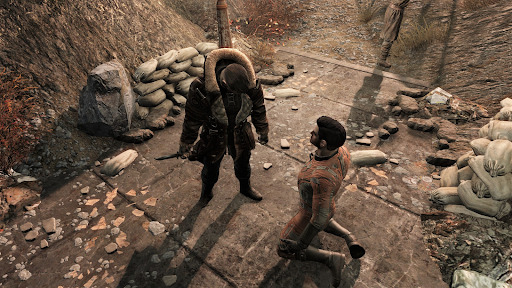
A few more fun facts about Gawain that resonate with Paladin Danse’s story:
He’s got a bunch of really shitty brothers. (No comment.)
Gawain (SPOILERS!) doesn't actually end up beheaded, but he does willingly kneel for his execution and gets a cut on the throat as a reminder of his sin. And, uh, Danse can also get his throat cut! It doesn’t end as nicely but it’s, you know, a thing that can happen.
Gawain might be a really good guy, and he tries really hard to be one, but in the end he’s nothing more than that: there’s nothing supernatural about him, he has no special powers beyond his own principles and devotion. He’s just a dude doing his Best.
Wait, why not Danselot?
Oh, that guy? Here’s the thing.
Lancelot personifies the continental ideals of courtly love that became popular in the High Middle Ages. Central to his story is the prioritization of personal relationships and romantic feelings in a way that you don’t really see in Gawain's, at least in the Green Knight tale. (Later stories hook Gawain up with an extremely delightful lady, but even that is a different flavor of romance than Lancelot's and has more to do with Gawain honoring his word and his egalitarian treatment of women (hell yeah). In the poem, Gawain is impressed by Bertilak's wife but resists her temptation; in fact, the biggest risk is not that he'll yield to her advances but that he'll be discourteous to her, i.e., violate his principles and cause dishonor to his king and his host.)
Lancelot is driven by passions over principles in a way that Gawain never really is (at least in the stories I’m talking about; later writers have committed character assassination to various degrees). Yes, you could argue that both Gawain and Lancelot betray their oaths, but Lancelot’s betrayal is never, um, blind. He knows what he’s doing and makes a deliberate choice to prioritize his love for the queen over his love for the king. It doesn’t make him a bad guy—he too is an ideal knight with one fatal flaw—but his character isn’t as comparable to Paladin Danse.
Yeah, Gawain is (in most stories) a prince and a kinsman of Arthur’s, but he’s ultimately a native boy who doesn’t break the mold of a Knight of the Round Table. Likewise, Danse is portrayed as competent and valuable to the BoS, but not exceptional or breaking the mold of what a BoS soldier should be: he simply represents the ideal. Meanwhile, Lancelot is a foreign prince who was marked from childhood as special and fancy, and his storyline goes alllll over the place. (Much like this post.)
For example, Lancelot goes to absolutely absurd extremes to prove his devotion for no other reason than to prove it. (“I’ll do any useless humiliating thing you want. I’ll betray every oath except the one I made to you. That’s what love is!”) Gawain would never. Danse would never.
Ultimately, Gawain's tests are of his character and not of his love. And like Gawain, Danse’s devotion is to service and his principles, not to another person—even Arthur Maxson.
All that said, there are some similarities: both are beloved by Arthur, both are held up as the ideal of what a knight should be. And even if their fatal flaws are different, both make the point that no matter how good and brave and loyal they might be, no human being can be perfect.
(Except Galahad. Who is, as a result, very boring.)
I’ll conclude this section with a quote from someone else’s take on the Greek Knight poem:
I like Gawain. He’s not perfect, but he’s trying his best which is all any of us can do. He’s not like the other knights in the Arthurian legends who occasionally ‘accidentally’ kill women on their little adventures and then feel hard done by when they have to deal with the consequences of that. Gawain holds himself to a high standard – higher, it seems, than Arthur and his knights hold him to considering how hard they laugh when Gawain tells them how bad he feels about the whole thing.
I think Gawain is very relatable in this story. We all want to be better than we actually are.
And that, more than anything else, is Danse.
The Grail myth
What’s that? Lost relics of power? Better send some large armed men after ‘em!
The parallels to the BoS’s tech-hoarding ways are obvious enough that the games themselves lampshade them (albeit by way of Monty Python). But it also ties into the larger themes of “purity” versus “corruption” and the BoS’s self-image as a bastion between civilization and chaos. (See Maxson's line in response to the Sole Survivor’s quip about the Dark Ages: “Judging from the state of the world, it wouldn't be a stretch to say we're living in that era again.”)
But the ultimate futility of the Grail mission is also worthy of note. The BoS might want the power of prewar tech on their side, but they’re no more to be trusted with it than any other group of human beings. No matter how they try, the “corruption” of humanity can’t be overcome as long as they’re striving to harness power for their own ends. You can only achieve power by surrendering control of it.
The death of Arthur
The nature of gameplay being what it is, it's not guaranteed that the Arthur figure will be fatally betrayed, bringing Camelot down with him—but it's not unlikely, either.

Awkward.
Some final spitballing:
Outside the Brotherhood, there are some fun parallels of the Arthur myth with the rest of Fallout 4. Betrayal by one’s own son, for example.
The key difference between the BoS and the legendary Round Table: King Arthur’s knights, for all their flaws and human weaknesses, are usually presented as unambiguous Good Guys. The BoS is... a little more ambiguous...
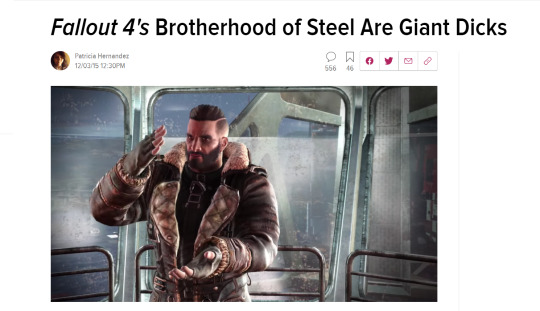
...but damn if they don’t think they're the good guys.
A-ad victoriam, fellas!
#fallout#fallout 4#brotherhood of steel#arthur maxson#paladin danse#sir gawain and the green knight#sir gawain#gawain#knights of the round table#king arthur#elder maxson#fallout 3#fallout lore#maxson#roger maxson#look mom I did a meta
328 notes
·
View notes
Text
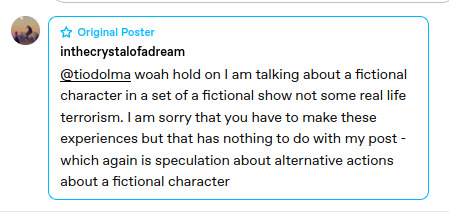
@inthecrystalofadream and i think this is what morgana analysis from a lot of merlin fandom lacks. Here I employ YMMV "your mileage may vary"
I get that we probably didnt grow up in the same circumstances. Hence why I can offer analysis like this of a very fictional character in response to your meta as someone who grew up in an environment that tbh isnt very different from Adventures of Merlin's Camelot. This is all very watsonian(in-universe) of us after all, so i implore you not to ignore what i can see for myself in bbc morgana's characterization.
Hear me out.
BBC Merlin writers were not stupid. They knew where to draw inspiration from. BBC Morgana, unlike arthurian legends Morgan la fey, was actually given by the writers a justified cause for her "evilness" or "extremism." She came from a place which wanted justice for herself and others members of a minority group and was continuously left with no choice but to go on the offensive. Why do I know this?
From this interview Katie Mcgrath dropped a very very interesting tidbit about Morgana's characterization
BTW, I used to think like you guys you know? Why couldn't Morgana just make a new kingdom? Why didnt she just started healing people out of the blue? Why wouldn't she convince uther when they are so close?
UNTIL THIS I READ THIS FROM KATIE MCGRATH HERSELF
“One thing I was told to remember was that you cannot underestimate the impact of spending a year with someone like Morgause … who she sees as the only person to ever accept her,” Katie explained, when asked about Morgana’s quick and brutal turn against everyone in Camelot
THIS SLAPPED ME IN THE FACE. You know what this reminded me? It reminded me of the "Save Our Children" Campaign my government used to propagate many years ago at the height of President Duterte's power. For context... Activism is basically discouraged in my "Democratic country." (ironic i know and thats why this propaganda was dangerous)
In this campaign the mothers of activists (who are now rebels) lamented at how their children/ young adult kids left home for montsh on end to train in the mountains and how they came back totally changed.
All the meta about "there is no way morgana would change in just one year! she must be darktowered and enchanted!" suddenly lost steam for me. I had forgotten an important truth in my own real life experience: THAT People, especially ambitious young adults full of hope and idealism, can get radicalised and turn to extremists in just 3-6 months by being thoroughly isolated from their peers and fed grandiose promises of new world orders and knowledge of information and offensive/militaristic skills.
You do not need magic to convince people to turn away from their original selves. You just need a skill of words and a show of belonging, community, knowledge, power and opportunity. AND 1 YEAR IN ISOLATION OF THAT? OH BOY. You got a well trained revolutionist and agent already.
I thoroughly believe that this is what happened with Morgana. Because Katie talked about her like that in that interview. In another interview she even said "Morgana was duped by Morgause"^^^
This is the analysis i have chosen to understand morgana. This is what I offer in this fandom. Because I come from a place most likely unlike yours but quite similar to BBC Merlin's in spirit.
There is another way to look at Morgana's character and that is to look at her in the eyes of a powerful political activist and A REBEL who was pushed to the extreme and yet not allowed to experience proper negotiation/diplomacy even when she asked for it.
Just think about it. Don't shut these kind of meta out for being disturbingly close to life for other fans. Our Mileage May Vary.
#bbc morgana#if u dont notice here activism is demonized in my country#u have to understand why i can analyse morgana like this#and pls open your mind#ymmv#it has everything to do with ur post tho#u said “side with merlin” and also “evil”#those are politics codewords already#morgana's struggle was political#also if u havent notied merlin is the same
2 notes
·
View notes
Note
Talk to me about narratomancy? Just whatever you want to talk about it I'm deathly interested
!!!! Today today i had so many Thoughts. To many. It almost rivals March 2020 thoughts
So
My current running names for the four pillars of Narratomancy are as follows:
Universal Story
Narrative Role Filling/Casting Call
Story Echoes
Narrative Flow/Narrative Imperative
Each of these refer to VERY different things within the concept of Narratomancy. I will do my best to describe them. I have coined every term here but narratomancy, to which I believe the honor falls to @lucky-sevens
Keep in mind this is 50% theory, 20% headcanon, 30% canon, and that you do not have to agree with me.
Universal Story
Universal Story refers to the story of the universe, not stories in the universe, the story of the universe. In other words, the story of ‘Dr. Carmilla & The Mechanisms’
This section of Narratomancy is a tad more meta than the others, as it does in some form rely on real-world events to define it, as well as having little to no in story inpact on anything. Maki created the mechanisms universe, clear and simple. She founded the band, and hashed out the earliest lore. Dr. Carmilla is the main character of the universe, not of all the stories, but of the universe. Essentially, Universal Story refers to the fact that Doc C is the main character of the universe, and that the mechanisms are her side characters, in the story of the universe. I have taken to viewing it as doc carmilla stuff is the story of the universe, and the mechanisms is a spin off of that. Both are just as canon, but not specifically canon to eachother. Regardless, the universes story is Carmilla, from starting on Terra, to Aurora, through Loreli, into creating The Mechansims, all of that. All of that is the story of The Universe. The Mechanisms backstories are included in this, of course, because they are part of Carmilla's tale, not the other way around. Through this, I conclude that The Mechanisms are a spin off, focusing on the mechs rather than Carmilla. After all, The Mechansisms are a vessel for telling stories, for fleshing out the universe.
Narrative Role Filling/Casting Call
This refers to the mechs penchant for falling into narrative roles similar to troupes that they represent, or basically acting as a crutch for a story to continue. In OUATIS, Jonny acts as The Prince figure in sleeping beauty. He saves Briar. In being The Prince, he allows Snow's forces to attack cole, and win the war. Without that whole escapade, its likely the war would have stretched on years longer, and not have ended as it did.
Or, Ashes as Hades. What do mythological Hades and Ashes have in common? Hades was eaten by his father, Kronos, because there was a prophesy that told Kronos that his children would usurp him as king of the titans. Ashes figured out Mickey was the snitch, Mickey realized beforehand and lead Ashes into a trap. Killing them because he knew that they could ruin him. Basically, a parental figure betrays the child figure due to them knowing the child could ruin/destroy their position of power. As well as, if Ashes were not Hades, the Suits would not have met, and because of that the story of Ulysses Dies At Dawn would not have happened.
Continuing, while I am not nearly as much of an Arthurian legend person as I am a greek mythology person, some quick google searches revealed a similar similarity between Merlin and Brian. Basically, Merlin and the lady of the lake. She was basically his apprentice/a lady he was in love with? She basically betrayed and killed him after learning all out magic from him. Brian brought a priest back to life, only to have the priest betray and kill him. The tying together point here is clearly the "someone you helped betrays and kills you." That or, the fact they are both magical. Beyond this, If Brian were not on Fort Galfridian, Galahad would never have sought out the grail, and the entire plot would not have occurred.
In The Bifrost Incident, the Mechanisms do not take narrative roles in the way they did in prior albums. But this does not exclude them from being vital points in the story, after all, if Ivy were not present Lyf would not have been able to recover the data on the Black Box)
In all of these situations, (barring Jonny as The Prince) the Mechanisms have had some sort of connection point in the Roles they assume, as well as in their roles, changing the story so that it can continue to the ending presented in the albums.
Story Echoes
Story echoes are, to be blatant, simply canon. No argument, no theorizing, just canon. Refers to the fact that in the mechanism's universe stories 'echo' or basically repeat. In Kofi's fiction for HNOC, its shown rather blatantly that there are more Arthurs in this universe than just the one in hnoc.
In those burning instants, he’d feel the weight of it all, and know it was true. The golden age that never came; the city that stood at the dawn of a world instead of in its dying embers. And beyond – to a myriad of Camelots and a thousand thousand Arthurs, unfathomable worlds apart, each different, each fighting the same hopeless battle.
I know there are other examples of this, but they do escape me right now.
Lastly,
Narrative Flow/Narrative Imperative
This one is also directly canon. On the mechanisms blog, this post defines it rather well.
In the ask, the asker asks "...Do you heal injuries at an abnormal rate, or can you not be injured?"
In the reply, it is stated.
It depends on the narrative imperative - sometimes a Mechanism might die for a while, and only come back later when it becomes more fun, other times they’ll just heal/ignore wounds as they take them. It’s not something they can control, but tends to follow a rough logic of whatever works best for the story.
This is just canon, no arguing or stating otherwise. A mechanisms ability to heal depends entirely on what's best for the story.
Other examples in canon where this comes into play would be as follows:
GPTVTMK. In gptvtmk, Jonny's severed head is there. Is talks. It moves. In one of the fictions, it's stated Jonny cannot separate his heart from his body. Therefore, these are contradictory. Under normal circumstances, this would be a plothole. It is not here. Under narratomancy, Jonny was capable of being a severed head due to the fact that that would be best for the story.
OUATIS. Jonny walks through rounds and rounds of bullets.
HNOC. This example is a bit different from the rest, as it is not about a Mechanism. Galahad does something pretty fucking impossible.
And so Galahad stood and walked into the corridor. The guns trained on the preacher and opened fire.
Say what you want about faith, but it can have powerful effects on those that have it. It can keep you from faltering as the bullets start to slam into you. It can keep you walking as your legs are shot to bloody stumps. It can keep you laughing as your lungs are filled with shrapnel and lead. It can keep you smiling as half your face is blown away. It can keep a man like Galahad standing tall until the guns clicked dry.
It is my belief that this is another example of narrative imperative. Under normal rules, Galahad could never have done this. But his faith, his beleif, kept him going. And that was good for the story.
So. That wraps up my narratomancy ramble for today. hope yall enjoyed.
*EDIT: Nastya does say it's nanobots. My opinion is: it's both. The nanobots are narrative driven <3
131 notes
·
View notes
Text

This month's knitflixing suggestion for Canadians: Merlin
From a young age, I've been obsessed with Arthurian legend. I grew up listening to a version of the King Arthur stories on tape, and as I got older, I proceeded to engage other versions and spin-offs, including acting in a play version of Sir Gawain and the Green Knight, and reading Mists of Avalon (which I enjoyed, despite the, um, questionable views of the author). And then, one day, I discovered Merlin on Netflix. Merlin is a reimagined telling of the King Arthur legend which places Merlin and Arthur as young men in Camelot and tells the story in that vein through to the Battle of Badon. I was initially turned off by the somewhat dramatic changes to the version of the stories I grew up with, but I eventually settled into it and enjoyed the show immensely. As I continued watching, I realized that the show meant to draw on the source material as more of an inspiration, and the plot wasn't meant to be an exact retelling.
A quick tangent here- I took a class on Arthur of the Celts, which explored the rise of the Arthur in stories and legends, from his roots as a Celtic warlord or Roman dux bellorum, all the way up to Geoffery of Monmouth's History of the Kings of Britain, which cemented Arthur's reputation into a King, a reputation which continues to this day. As I took the class (and rewatched the show simultaneously to "study"), I realized that the show is actually ladened with references to source material in ways that I didn't even know about in my first few watches. The nerd in me was extremely happy and very impressed, so if you're familiar with the Celtic origins of Arthur and some of the most prominent early texts, you'll enjoy the clever way the sources have been weaved into the show. Now, back to our regularly scheduled programming.
Merlin was originally written to fill the space left by Doctor Who in its off season, so its intended audience was a family who would be looking for something to watch during what would normally be Doctor Who time. The "family" aspect is very obvious in some episodes, and distinctly less obvious in others. As with all shows, there are great episodes and some less great episodes, but overall the show is simultaneously funny, clever, emotional, sad, gripping, and light-hearted. The seriousness of the show also progresses as the seasons go by and the characters age, so the feel of the episodes is very different by the last season.
One word of warning- the CGI is very early-2000's, which can be distracting at times, but do your best to ignore it, because the rest of the show is well worth watching.
You might like this show if: you enjoy Arthurian literature and are a huge nerd about it (like me); you like the enemies to friends (or maybe... lovers?) trope; you like historical dramas with pretty costumes and big castles.
You might not like this show if: you're not willing to endure the somewhat cheesy first season; you can't stand early-2000's CGI and special effects; you don't like any re-interpretations of the King Arthur material.
2 notes
·
View notes
Text
Some thoughts on Winx characters’ ages
From youngest to oldest, more or less
Characters discussed: Miele, Roxy, Daphne, The Earth Fairies, Faragonda, Griffin, Griselda and Valtor.
This is very long and I’m very sorry.
1) Miele (Flora’s sister)
She has been aged down in season 8, so I’m no counting that into her age.
She seems really young in season 3, mostly because she is so much shorter than the Winx in a lot of the shots (though her relative height compared to them seems to change a lot - sometimes she’s up to Flora’s waist and sometimes to her chest. Ugh, inconsistent art is the worst).
In seasons 6 and 7, she looks like she could be in her early teens, like 15 at most (and most of her classmates fit that age range, too).
She doesn’t have an official age, as far as I could find, but I’m headcanoning her as being 10(ish) in season 3 and 14(ish) in season 6.
Final headcanon age: 10 (season 3), 14 (season 6)
2) Roxy
Roxy does actually have a canon age, but I’m chosing to ignore it, because it doesn’t feel accurate.
Roxy is supposedly 15 in season 4, but the thing is, she doesn’t feel that much younger than the Winx, who are at least 19, 20 in Stella’s case, possibly even a bit older (the time skips between seasons aren’t exactly clear). Like, don’t get my wrong, she does feel younger than the Winx, but not by 4-5 years. I’d put her at like, 17(ish) in season 4.
One more reason I headcanon her to be older is simply because the younger she is, the more plotholes there are in the whole “The magic on Earth has been gone for a really long time” thing (especially if you could the later seasons and the Selina plot, but that’s a rant for another day). To sum it up, if Roxy was 15 in season 4, it would mean she was born when Bloom was 4 or 5, already on Earth and that Morgana would have been captured around the same time Eldora took Selina under her wing (aka, Bloom and Selina’s magical power were already noticable) and that’s assuming Roxy was just 1, when Morgana was captured. Which would raise the question why the Fairy Hunters, who have spent the last several centuries hunting down fairies, wouldn’t notice two other fairies living a few blocks away from Morgana.
Aging Roxy up makes the timeline make more sense as most of the plotholes created by season 6 are eliminated if Roxy is closer in age to the Winx.
Final headcanon age: 17 (season 4)
3) Daphne
Daphne, again, doesn’t have a canon age, and, in fact, her seeming age changes a bit here and there. Both her picture in the book of Fate (1st movie) and her voice in the (probably fake) memory in season 2 make her appear to be younger than in any of her other appearances, but since the first is from a movie (which have questionable canonicity, especially, when it comes to details), the other is most likely fake, and both of them are at odds with everything else we know about Daphne’s story, I’ll just ignore them.
The youngest I’d go for her is 18, at the time of her “death”, with the oldest I’d go being like 23.
Honestly, I’m very tempted to headcanon her as being 18 or 19, because, like, do you see the angst potential? I mean the whole Domino resurection is an untapped angst mine, but like, having Bloom be the exact same age as Daphne was, way back when? It just adds a bit of something, you know?
It would also be kind of fun to have Daphne be physically younger than Bloom, once she’s resurected, too. Bloom is 20(ish) when she brings Daphne back, possibly older (again, time skips aren’t really clear between the seasons).
I’d also like to add a friendly reminder that, regardless of her physical age, Daphne is around 40 chronologically, when she’s resurected.
Final headcanon age: 18 (at the time of death)
4) Faragonda, Griffin and the others
The others being mostly Griselda and Kalshara, since all of these characters are meant to be roughly the same age, give or take a year or so. And I guess Saladin and Kalshara’s brother, though those two aren’t really confirmed to be around the age of these four.
Faragonda has a “100 years of being a headmistress of Alfea” party around the start of season 6. Even if we say she had become a headmistress right out of school, she’d be at least 120 at that time, though she’s probably at least a decade older than that.
Since Griffin, Griselda and Kalshara have all been in school at the same time as her, it’s most likely they are about the same age as well.
This does give us a lot of insight on the lifespans of people in the Magical Dimension. Griselda looks middle-aged, despite being at least 120. Griffin barely looks human, so her age is hard to guess, but she doesn’t look terribly old either and neither does Faragonda, if you think about it. Kalshara and her brother have that wild magic thing going on, so I’m not really counting them in.
Also, the flashbacks on the old Company of Light show them looking really young, when they would be a least 100, when Domino fell. So, if we exclude continuity errors as an explanation (even though that is the real exaplanation), we’re left with either:
A) 100-year-olds in the magical dimension just look like they’re still in their twenties
B) They’re all vain bitches that make themselves look younger using magic.
C) The Company of Light goes a lot further back than we thought.
Or any combination of those three, really.
And, again, this calls into question how long do people in the magical dimension live? I’m thinking at least the same as wizards in Harry Potter universe (who live to be like 140 on average, apparently).
FInal headcanon age: 130 at least
5) The Earth fairies and the Wizards of the Black Circle
All of the names Earth fairies from season 4 (with the exception of Roxy) have been around since at least the medieval times, as have been the Wizards of the Black Circle.
So, we can assume all of these character are at least like 600 years old.
But
Morgana is strongly associated with Morgana le Fay (literally: Morgana the Fairy) from Arthurian legends in the show - assuming that this isn’t just a reference, but she actually inspired Morgana le Fay in the Winx universe, she’d have to be over 1100 years old at least (since the first recorded version of the legends comes from the 9th century), most likely closer to 1500 years of age (since the legends are set in the late 6th century). That is on the low end, so she might be even older.
As for the other major fairies
Diana has quite strong paralels with the roman goddess of the same name. She is incredibly powerful, so it is quite possible, that she was seen as a goddess by the ancient humans and became the inspiration for that particular goddess. That would make her go at least as far back ar 6th century BCE, if not further. Her temple isn’t much help, since pyramid-like things have been some fo first permanent things humans built and are being built to this day.
Aurora does have some links with the roman goddess of the same name, but those are pretty weak, so I’ll not dive into them much.
As for Sibylla, well, Sibylla’s cave and the Sibyllini mountains are things IRL, named after the Sibyl prophetesses (who are heavily linked to the oracle of Delphi, which you probably know of). Earliest record of those is in 5th century BCE.
To sum up, the Earth fairies are old as sin, and probably don’t actually age.
Which probably means Roxy is also going to be ageless. Now that would be an interesting thing to look into.
6) Valtor
Valtor has a canon “at least this old” limit, if you count season 8 info.
That is, he is at least 1000 years old. We know he wasn’t born, but made, so he might have theoretically been just a few weeks old, when he tried to catch the wishing star last time.
We know the spark that Valtor came from was “lost” around the same time as creation (I’m just now processing that creationism is canon in the Winx universe. Great). The Ancestral Witches were supposedly first evil creatures to exist in the Magical Universe, so they probably came in shortly after. And then they created Valtor, at some point.
So, Valtor could literally be almost as old as the Magical universe, however long that is.
Final headcanon age: Who knows, certainly not me, and since 1000 years is the lowest possible age, I don’t actually want to know.
#winx#winx miele#winx daphne#winx roxy#winx earth fairies#winx valtor#winx faragonda#winx griffin#winx griselda#winx kalshara#winx morgana#winx diana#winx aurora#winx sibylla#long post#sorry about that
36 notes
·
View notes
Note
Hello Mera! First of all a lovely congrats! I was wondering if I could get a Merlin and Doctor Who what if ship? My pronouns are she/her. I’m very creative and curious. I spend lots time living in a world of my own discovering and exploring ideas. To the outsider I seem incredibly "dreamy" and distant, because I spend a lot of time inside my own mind musing over things. I’m very easily bored by day to day things and will zone out on the majority of people. As for hobbies I’m very interested in the visual arts. I myself am an artist working in both fine and digital mediums. I also love studying symbols through art (I’ve tried to incorporate them into my own art ya know give the viewer a sort of scavenger hunt). I also love films, books, video games, and movies. This is to an extent of over analyzing and theorizing. Let’s just say I’m invested in stories. My favorite genres are probably myths/legends (Arthurian specifically), espionage/mystery (bond movies, sherlock etc), historical fiction (assassins creed), sci fi (Star Wars/Doctor who) and fantasy (Merlin, lotr). Back to studying art which is what I am currently doing in college. I’m majoring in Digital Media Art which is things like user experience, web design, cgi and graphics etc. I also love to workout and kickbox. Lastly, my preference is for either males of females. Thank you once again!
Thank you!
Here they are! This is my first time trying to do a What If ship, so I hope you like them! They are under the cut!
Merlin:
S/O: Guinevere.
How you met: You were brought to Camelot by Uther not long before he died. You were hired to curate art/art pieces for Camelot. You met Gwen when you were touring the castle, and you became friends quickly.
Your relationship: I think the two of you would be close friends for a long time, before your relationship grew, until neither of you could ignore it anymore. You two were afraid people would not approve with your relationship, but you soon found out that your friends had made bets on how long it would b before you started dating. They are actually very approving and love that you two are happy.
Role/Job: As I mentioned above: I imagine you would be an artist, and a curator. You would make and bring beautiful art to Camelot, and adorn the castle with it.
Best-Friend: Merlin of course. You two would be rambunctious together, causing mischief and helping people as well as you could.
Other Info: After Uther died, you were afraid you would not be allowed to stay in Camelot. But Arthur liked you and allowed you to stay, inviting you to continue your job as you had before. + You and Gaius share a love of books and often lend various books to each other to read and talk about.
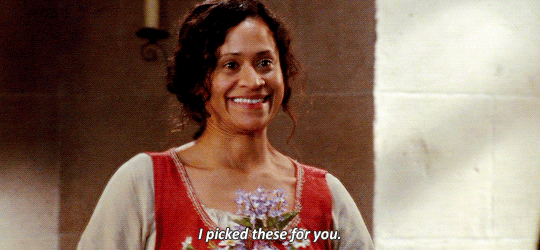
- - - - -
Doctor Who:
S/O: Eleven & Ten.
How you met: You met the Doctor when he was Ten, after you were trapped in your work place by aliens that had come to Earth to take people for some reason (I'm not that creative right now lol). And you stayed with him until he became Eleven.
Your relationship: You and Ten fell for each other fairly quickly, and become so close, that of course when he regenerated, it was hard for your relationship to continue. There was a rough patch and you fell back in love, but you did! Because even though he was very different, he was the same at his core, and you could not help but want to continue being with him no matter what.
Role/Job: You worked as a digital artist at a popular art museum. But obviously this all changed and ended when the Doctor came and rescued you.
Other Info: You were very useful to the Doctor on your adventures, as you are very knowledgeable, clever and analyzing. You can often see things he misses, or solve problems he is too excited about to see clearly.
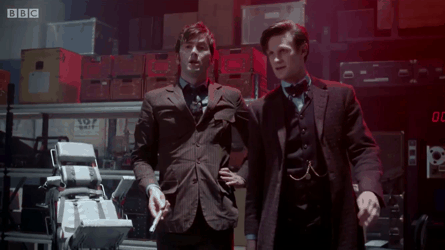
^I'll let you imagine what kind of adventure this would have been lol
xx
I hope you liked them!
3 notes
·
View notes
Text
where the wildflowers grow
Gwilym Lee x Fem!Reader
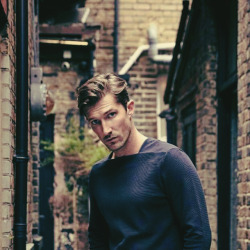
synopsis: they say there lives a witch in the wildflower woods, but Gwilym has never believed the tales. until now.
warnings: use of medieval swords (no blood)
word count: 2.1k
see the moodboard here!
⭒
It’d been dark when he’d set out that morning, and though it was always dark on his mornings in the woods, this day had begun darker than usual.
He’d dressed by the flame of a single candle and sheathed his sword at his side, fastening the buckles of his boots with practiced hands, for this was routine.
Gwilym liked routine. He even liked his shifts in the Wildflower Woods, and while the other members of the royal guard drew straws to determine which unlucky bastard would be patrolling the woods that day, Gwilym always volunteered.
The woods were quiet, and an outlander might have thought that this silence was what the men feared, the dull buzz that began in one’s ears once exposed to soundlessness for an extended period of time, alone with the sound of one’s breath and the wealth of one’s thoughts, but the outlander would have been sorely mistaken.
The men did not fear silence; they feared what lived in the silence.
It was said that a witch lived in the Wildflower Woods, capable of a dark and terrible magic, magic which the king had long since outlawed, criminalised. There had been innumerable huntings and burnings when the legislation had passed, and to this day, every citizen of the kingdom could hear the cries of the men and women killed for crimes they had most likely not committed.
No exceptions had been made, and everyone deemed a witch had faced a terrible fate upon the courtyard pyre of the Castle Gaerwen.
No exceptions had been made, but one particular individual had slipped from the grasp of the king’s guard.
They called her Morgana, after the enchantress of Arthurian legend, and she was feared as equally as the woman of the legend. It was said her gaze was deadly, and that she could take any form she desired, turn water to liquid poison, revive both the dying and the already dead, and change the weather at will. No one had any power over her, for even the elements bowed to her magic, and so she had been deemed too much of a risk for the royal guard to capture.
And so, the royal guard now patrolled the Wildflower Woods morning and night, to ensure that the witch did not move to attack the good citizens of Daryn.
Gwilym had patrolled the woods for years now, and had neither seen nor heard any sign of a witch. Thus, as all logic demanded of him, he did not believe the tales. The other men called him foolish, shuddered at his naïveté, but Gwilym laughed merrily at their fears whenever he was given the chance. He did not believe the tales, and so he did not fear the woods. The woods were a solace, and in living the life that he did, with chases and fighting and travelling, it was nice to have some time to himself, in a place where the world was quiet.
His boots crunching on the gravel of the path which led out from the guards’ quarters and toward the outer wall of Castle Gaerwen, Gwilym nodded morning greetings to those arriving home from the night shift.
Women stood lined up to draw water from the wells in the courtyard, and a group of them giggled as Gwilym passed. He sighed inwardly. He did not encourage their attentions, and yet, they continued to behave in this manner whenever he was about.
Ignoring the chatter that followed him, Gwilym arrived at the outer gate.
“Morning,” he said to Mercher, his friendly acquaintance and the man whom Gwilym was to share the day’s shift with.
Mercher mumbled his own greeting, and Gwilym smiled.
“Nervous? It’s just the woods, you know.”
The other man grunted. “There’s more to those woods than you think, ffwl.”
“There is no witch in those woods, fy ffrind,” Gwilym countered good-humouredly.
“Perhaps you are right,” Mercher responded, as he tapped his fingers along the hilt of his sheathed sword, “but there are other things too.”
Gwilym raised an eyebrow. “Oh?”
“Mmh. Venomous serpents larger than fully grown horses, boars with tusks longer than your forearm, spiders which will crawl into your eyes if you close them unawares.”
Gwilym’s eyes twinkled; he was amused. “Well then, Mercher,” he clapped his companion on the back and strode forward through the opening gate, “we should get going so that these creatures can have their breakfast.”
Mercher swallowed thickly, standing rooted to the spot. With a shake of his head, he hurried to catch up to Gwilym, who was still smiling to himself.
“By rights, we shouldn’t be allowed to risk our lives like this,” said Mercher.
Gwilym laughed. “You should have been a baker instead of a soldier! Courage, fy ffrind. It will get you far in life.”
⭒
As they were only two, Gwilym and Mercher were forced to split up in their duties. Gwilym appreciated the solace, but Mercher was fearful. The former repeated his advice of courage to the latter, and the two parted ways.
A deep mist hovered betwixt the trees this morn, and so it was difficult to see very far beyond one’s own hand, but it also afforded the woods a mysterious quality, one which only fuelled Gwilym’s lust for adventure; outwardly, he was grown, but at heart, he was still a child, and longed to live the stories of pirates and highwaymen that his mother had told him when he was little.
Gwilym was still searching for his purpose in existence, and though he had yet to find it, he was sure it involved adventure, something more than this little life he presently lived.
Almost as though the world around him were aware of his longing, a rustling arose from the surrounding shrubbery.
Gwilym’s hand flew to the sword at his side, his knees bent, prepared to run.
There was silence. Not even a bird cawed in the canopy overhead, no river water rushed, no wind was heard between the trees.
Something slithered in the undergrowth.
Slithered. It was very distinct.
Hyperbolic images of terrible, scaled bodies with large mouths bearing fearsome, pointy teeth dripping venom conjured themselves in Gwilym’s mind, and his heart kicked up its rhythm.
His eyes flitted about the bushes, the endless wildflowers which carpeted the forest floor and provided the wood with its name, but he could see nothing. It was still rather dark out, and the mist did his eyes no aid.
Then, suddenly, a great, scaly body launched itself from the undergrowth, and before Gwilym could react, tore its fangs down his calf.
He gave a cry of pain, and lashed out with his sword, but the venom must have been rapidly acting, because his vision had already turned blurry.
But with, quite literally, a stroke of luck, he struck the creature, and with a violent hiss, it retreated rapidly back from whence it had come.
Gwilym was left to his solace once more, but now he was panting, and nearly doubled over in trying to lean his weight against a tree.
He shouted for Mercher, once, twice, but no response came.
He was on his own.
Feeling as though he were going blind, Gwilym staggered forward at a pace that was rather quick, fuelled by desperation. Pain lanced through his leg and up toward his heart, and he knew that one must not allow venom to circulate once in the veins, but what else was he to do? Lay himself down to die?
No, for that would be a coward’s death, and Gwilym Lee was no coward.
A light flickered in the mist, between the trees.
Perhaps he was hallucinating. It was not unlikely.
But he held onto hope, and dragged his heavy feet forward until the light grew bigger, brighter.
The light came from a window, in a cottage built of heavy stones. Gwilym imagined the craftsmanship to be excellent, but he did not know for sure. His vision was beginning to grow dark around the edges.
At last, he happened upon the door. With a heavy arm, he knocked against the wood, and collapsed, just as the door swung open.
⭒
He could smell woodsmoke, and heather and all kinds of herbs.
His eyes were heavy, as though he had not slept for days, and a dull pain throbbed in his leg. But it was nothing of the agonising pain he had felt before.
There was a sound like the clinking of metal pots and pans, and someone was humming.
With tremendous effort, Gwilym rose to his elbows, and opened his eyes.
The light was low, but there were candles aplenty, and they flickered softly, in their places about the room— in teacups and saucers, upon plates and wooden carvings, standing proudly in window sills and atop shelves.
On the shelves, there were potted plants and what appeared to be bottled herbs, labeled with names both familiar and unfamiliar to Gwilym’s vocabulary.
His eyes wandered about his peculiar surroundings, before returning to where he lay— in some sort of bed that was really more of a cot, made of linen and crowded with sheepswool blankets and a stitched duvet.
Bless the kindness of strangers, he thought, until his gaze happened upon his host.
She locked eyes with him before he could turn away, and his breath caught, because the woman before him was enchantingly beautiful, and without a doubt the witch of the tales he had not believed.
A slow smile curved over her lips. “My stare is lethal, no?” she said, a thick Welsh accent carving her English words differently from the way Gwilym spoke his.
His first instinct was to laugh, and he almost did, before he thought better of it. There was no telling what this witch was capable of, and presently, he was utterly at her mercy.
But a question had occurred to him as well, and so he asked it.
“However did you guess that my English is better than my Welsh?”
That slow smile touched her pretty lips again. “Like you say, it was a guess.”
“Damn good guess,” Gwilym said, not bothering to hide the fact that he was impressed.
She laughed, a warm sound, and he felt oddly comforted by it. “Us gwrachod do have a talent for those sorts of things.”
“So it is true, then?” he spoke carefully. “You are the witch of the Wildflower Woods.”
“I am. Morgana, if you will.”
He fixed her with an inquisitive look. “Yes, but that is not your name, is it?”
She had been standing by a stove, but now, she wiped her hands on the apron that hung over her full skirt, and walked toward him. She perched in a rocking chair positioned by the cot and leaned back into it, folding her arms.
“No one has ever asked my name before.”
Her voice was quiet, low, and surely as enchanting, as lethal, as her stare. But he detected a loneliness beneath the words.
“Well,” Gwilym said, “I am asking you now, politely, if you will give it to me.”
She narrowed her eyes. “There is much in a name, Gwilym.”
He raised his eyebrows in surprise, sitting up properly. “You know my name?”
She nodded. “A pretty name, no? But a bit long. I like Gwil better. Do people call you that?”
His heart felt strangely light at his name on her lips, even when it was shortened. “They do now,” he said, and thought that her eyes glittered. “And your name?”
She murmured it, and it sounded to him like the songs of old, a lilting melody with an alluring darkness humming beneath the surface.
He rolled the sound over his tongue, and felt a faint blush rise to his cheeks as he said it. Indeed, there was much in a name. An intimacy, too. Gwil did not often use the given names of his acquaintances.
“You healed my leg,” he remarked thoughtfully, shifting it from beneath the blankets.
“And purged y gwenwyn from your veins,” she added.
Her eyes were deep, and he felt himself sinking into her gaze as he met it.
He murmured, “You saved my life.”
“Ie,” she said. “That I did. A witch is not so bad, you see.”
Her smile was teasing, and he knew then that he had nothing to fear from the witch of the Wildflower Woods.
“And for that,” Gwil began, his eyes searching the room for his sword. It was resting just beside him, on the floor by the cot, and he drew it now, standing it upon its point on the stone floor and bowing his head briefly. “I am forever in your debt.”
She smiled, and Gwil feared that more than his honour was indebted to her.
His heart, for certain, was too.
48 notes
·
View notes
Text
That ominous child
Since everyone seems to argue and hypothesize about the identity of King’s and Diane’s child, and Nakaba can’t be bothered to offer answers, I decided to throw my own hat into the ring. Using The Encyclopedia of Arthurian Legends - the best book EVER - I have devised a list of the ten most interesting and most likely candidates from a variety of Arthurian stories. Most of these have been named by others before, but I’ve come across a few obscure characters that might be worth considering. Five guys, five girls, here we go:
#1 Gawain
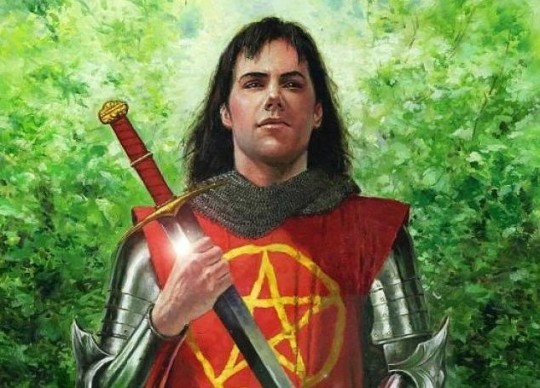
I’ve read this take a few times, but honestly, I find him to be an unlikely candidate. As Arthur’s nephew, Gawain has next to no ties to the Fairy Clan (or Faerie if you prefer the old spelling). Gawain also has a track record of becoming an antagonist to Lancelot, including his role in Le morte d’Arthur (Thomas Malory). Could a rivalry between Lancelot and his cousin work in nnt canon? Certainly, but I find it unlikely. I like Sir Gawain and the Green Knight (unknown) as much as the next guy, but I have a hard time connecting his personality with either King or Diane. There’s also Gawain’s ability that increases his strength by noon, which is the same as Escanor’s Sunshine. In short, I wouldn’t be surprised to see Gawain make an appearance in The Four Knights of the Apocalypse, but not as King’s and Diane’s child.
#2 Perceval (or Percival)
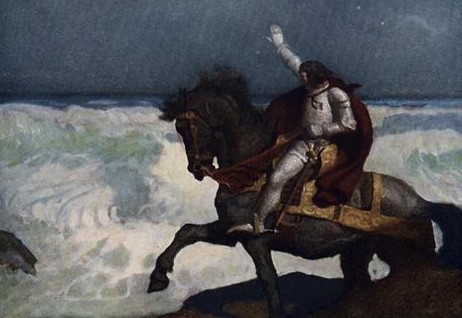
Now, this one’s interesting for two reasons: his ties to the Holy Grail and his origin. In The Story of the Grail (Chrétien de Troyes), Perceval is said to be raised in a forest by his mother, who doesn’t want him to become a knight. With Diane’s natural resentment to fighting for the sake of fighting and after what happened to Lancelot, I could see King and Diane wanting to avoid their child to follow in their footsteps and become a knight. As for the Holy Grail, which shares resemblance to the Fountain of Youth in nnt, Perceval was one of several knights who found the grail. The list includes Gawain, Bors, and Galahad, Lancelot’s son. What makes Perceval stand out among these, however, is that in a continuation of The Story of the Grail (Manessier), he is revealed to be the nephew of the Grail King and he inherits his kingdom after his death. If we consider Ban the Grail King due to his relation to the Fountain of Youth, Perceval might just be the name of his so far unidentified nephew.
#3 Bors
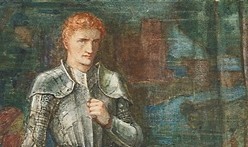
I heard his name being tossed around in conversation a handful of times, mostly because Bors the Younger is Lancelot’s cousin according to Malory. And while Nakaba seems to take a lot of inspiration from Malory when it comes to family relations (look no further than Tristan’s and Lancelot’s parents), in Arthurian Legends, everyone is related to everyone. In the Historia Regum Brittaniae (Geoffrey of Monmouth), Ban’s sister Ivoire is the mother of Uther Pendragon, which makes Lancelot Arthur’s uncle once removed. What I’m trying to say is, Bors is not the only one related to Lancelot. But to be fair, Bors is a Knight of the Round Table, and therefore a companion to Lancelot and Tristan. So, if King’s and Diane’s child is named Bors, it won’t be entirely out of left field.
#4 Oberon
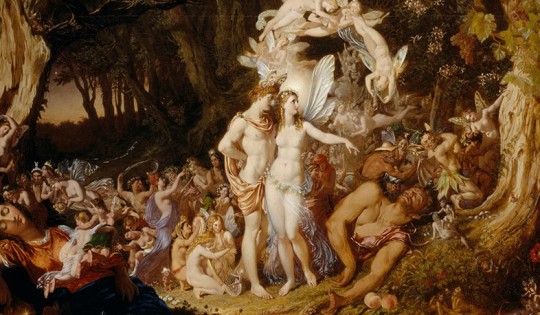
A popular choice for a reason. Oberon is featured in a handful of Arthurian poems as king of the fairies, so he certainly has a connection to King and the Fairy Clan. The only problem I see is that Kings child, no matter who they are, would likely not succeed him as Fairy King. The Sacred Tree makes that choice. Regardless, while Oberon might never be the Fourth Fairy King, he could feature as first prince of the Fairy Clan.
#5 Galehaut
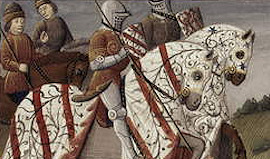
An interesting side character of Le morte d’Arthur (Malory). Why? Because his mother was the giantess Bagota, which makes him a canonical hybrid. His title as ‘the high prince’ would also fit his identity as King’s and Diane’s child. And as a final bonus, Galehaut is a firm friend of Lancelot and through him became a Knight of the Round Table.
#6 Morgan Le Fay
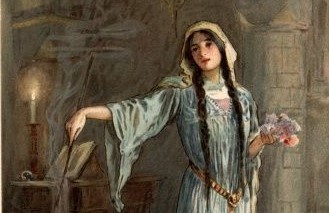
My personal favorite. While she is Arthur’s half-sister in most stories, when she appeared in Vita Merlini (Geoffrey), there is no mention of her blood relation to Arthur. Instead she is said to fly with wings and be able to change her form. Sounds like another Fairy we know, doesn’t it? Morgan learned magic from Merlin, and since the nnt versions of Lancelot and Tristan seem to focus more on physical rather than magical combat, I think it would be nice if King’s and Diane’s child filled that gap. What’s also worth noting about Morgan is her connection to the Fairy King Hellekin, who in Italian romances became better known as Harlequin. In Li Jus Adan (Adam de la Halle), Hellekin is the lover of Morgan Le Fay, and while that sounds weird as an argument in favor of her being King’s daughter in nnt, Nakaba could always ignore this detail. Or Morgan will be the real name of the Lady of the Lake, who knows at this point.
#7 Nimue
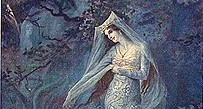
Some sources such as Myths of Britain (M. Senior) argue that Nimue is a variant of Vivian, and that they are the same character. Both are typically identified as a Lady of the Lake. Nnt already has a Vivian, and the way she kidnaps Gil and obsesses over him bears resemblance to what Nimue does to Merlin in Le morte d’Arthur (Malory). Then why did I include Nimue? Because Nimue/Vivian is the the granddaughter of the goddess of the wood, who, in the prose of Vulgate Version (unknown), is named Diane.
#8 Iseult (or Isolde)
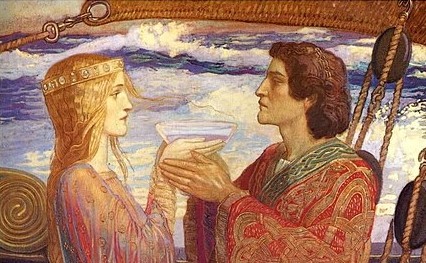
This one only works if Kiane’s daughter will have a romance with Tristan. I’m not saying that is impossible, but how often does it happen that the the children of friends fall in love? It’s a nice trope, but if King’s and Diane’s daughter were named Iseult, her fate would be a little too predictable. And I guess this would also mean that the Fairy Realm is the equivalent of Ireland... so it works perfectly!
#9 Caelia
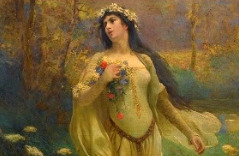
My wild card. She is only featured in one work, as far as I know, A Collection of Early English Prose Poems (edit. W.J. Thomas). Caelia is here the Fairy Queen and the lover of Arthur’s illegitimate son, Tom a’Lincoln. So, if Arthur already has a child at the beginning of the sequel, and if said child is in need of a love interest, King’s and Diane’s daughter might just fit the bill. Let’s just hope that nnt Caelia won’t drown herself.
#10 Laudine
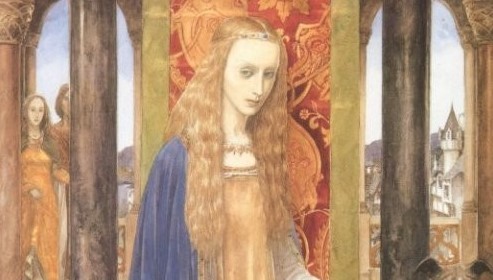
Last one, this post is already longer than it has any right to be. In The Knight with the Lion (Chrétien), Laudine is the lady of a magical fountain in the forest of Broceliande. This creates a nice connection to Elaine, doesn’t it? And if the Fairy King’s Forest will somehow find a new Fountain of Youth, perhaps King’s and Diane’s daughter will guard this new fountain, just like Lancelot guarded Benwick in his father’s place. Laudine later became the wife of Owain (or Ywain), another Knight of the Round Table and Arthur’s nephew.
...
Or Nakaba messes with us and picks a random name out of a hat to assign to King’s and Diane’s ominous child.
#nnt#nanatsu no taizai#seven deadly sins#arthurian legend#kiane#kiane child#four knights of the apocalypse#this took way too long to write#long post#happy hypothesizing#arthurian legends are confusing#especially when they contradict each other#consider this my thesis#gawain#perceval#bors#iseult#morgan le fay
73 notes
·
View notes
Note
You're def right on TH White. You mention more important things but (like you also said) dude is really boring. Not a good writer. Sword in the Stone starts out seeming like it's going to be a cool exploration of a beloved character in boyhood, and the super-Britishness could have been charming. But it's just a bunch of random scenes and animal shit. Banger of a movie though.
I really didn’t care for his writing style. Which believe it or not I’ve gotten pushback on (I don’t publish stupid asks or DMs, just take my word for it).
I see what T. H. White was getting at with the bird-transformation teaching Arthur to view the land without borders blah blah blah but it’s just a slog. So often I see people saying, “Well, to be fair, it’s not all bad. There are some beautiful lines by T. H. White.” And sure, that’s true. But first of all I don’t have to be “fair” to a dead bigot. Why play devil’s advocate for him? And secondly, insinuating my dislike of the books is uncharitable to the things T. H. White “got right” misses the whole point of my criticisms. We have to acknowledge that giving concessions to T. H. White comes from a place of privilege. It says, “I can ignore the allusions to Nazism and anti-Blackness and misogyny well enough to appreciate these sporadically well-written lines and gush about Lancelot’s queerness and I’m going to continue to share quotes and spread knowledge of this book around.”
We have got to do better at creating a fandom space that’s both welcoming and safe for everyone. It’s not safe for any of us until it’s safe for all of us. Would you recommend TOAFK to a Black friend? To a Jewish friend? If yes, wow, I hope your friends do better than you. If no, then stop recommending it altogether. This goes for several Arthurian retellings [I’ve got a rant about on my pinned] but I digress.
Let’s just be grateful we have the Disney animated movie and the Camelot musical, the gift that keeps on giving, and leave it at that. And while we’re at it, take heart from those, and write our own versions of the legend using the elements we love about previous retellings. All the cool kids are doing it. We really can have our cake and eat it too.
16 notes
·
View notes
Text
SPOILERS FOR TALES OF ARCADIA!
Seriously though!! ALL the spoilers, up through Wizards!
Because have I got a RANT for you about some FREAKING CONTINUITY! It’s...kinda long. Proceed below the break at your own risk.
So, we have info on the past Trollhunters from the show (mostly Trollhunters and Wizards, though we get a peek in 3Below at Kanjigar as the Trollhunter REALLY early on in the Trollmarket settlement, though no specific date) as well as some comics, which gives us all kinds of good stuff like Trollhunter names and species and personalities and when they served and all that! Trying to make a combination of these coherent, though...kind of ruins a proper timeline, especially because of Wizards. Actually, mostly because of Wizards. THAT tells us that Deya was the FIRST Trollhunter because Merlin had only JUST finished creating the Amulet, right?
WELL
Even discounting ANY of the alternate materials and only pulling from the show (which is all I’ve seen, actually. Haven’t read the comics, just heard of them, so my observations are almost purely show-based) this doesn’t really make any sense. AT ALL. See, because Gunmar’s war had been going on for a long long time, right? Before Killahead ended it (sort of). And Trollhunters were there to protect good trolls from just such a thing. A great many died in this service, while none could defeat Gunmar. Kanjigar even SAID that the blade of Daylight has fought Gunmar many times, but has never beaten him. If you look at the Wizards timeline, though, Deya apparently got the Amulet first, fought Gunmar in her very first battle with it, then successfully banished him and all the rest of the Gumm-Gumms (except for dearly departed-by-YEET Bular) into the Darklands via Killahead. So...if Deya really WAS the actual first Trollhunter (which no one SAYS until Wizards, they just say she’s the GREATEST) then it wouldn’t be true that Daylight has fought Gunmar many times; it didn’t even fight him TWICE.
(Also, remember that time or twenty when Draal said he’s waited his whole LIFE to be worthy of the Amulet? But then we see him as a grown-ass adult the first time the Amulet is ever even mentioned?)
I mean, this doesn’t even GO INTO Angor Rot’s origin, in which the war was ravaging his village and people so badly and for so long that he became MADLY desperate for the power to protect them, going to a Morgana who was already well-known as The Pale Lady, Baba Yaga, and all the rest of that jazz, but was NOT YET sealed away by Merlin (or Douxie, as the case may be). Then she goes on to command Angor to kill Merlin’s champions, the Trollhunters. All this while Gumm-Gumms are still on the loose. So...either the Amulet was already made, Trollhunters were a thing, and she’s super salty about Merlin taking her left hand for the project, leading to her vengeance motive to sic Angor on the whole lot of them OR, she, like, knew that was GOING to be a thing and wanted to take really extreme preemptive action? If we are to believe Wizards, even Merlin didn’t know he was gonna need Morgana’s hand to finish the amulet and her self-proclaimed hatred of Trollhunters didn’t crystalize until AFTER that.
All of that to say, look, I get why Wizards did what it did. They wanted to put all of that wonderfully juicy backstory stuff into the time frame when our protagonists could be there to see it. The falling out of Merlin and Morgana (and actually seeing THAT gave us the chance to see Morgana pre-Dark Side, opening up a path to redemption for her via Claire), the creation of the Amulet, the Battle of Killahead Bridge, the first Trollhunter, not necessarily in that order. Those are all really cool things and yes, I am kind of glad we got to see them because they WERE all very cool. I just kind of wish they had been more creative with, like, visions of the past and such to make it happen, instead of trying to cram all of those historically significant events into the period of only, what? A few days? Doing that just massively screwed up their own established timeline. Dropping four modern-day people into the middle of all that is NOT excuse enough to say they messed it all up.
Holy crap, I just wondered if the way to fix all of this would have been to throw different characters into different parts of the past. Douxie WAY the heck back to when Merlin first creates the amulet (using non-show material now, it’s mentioned that Spar the Spiteful was Trollhunter 5200 years before Jim, so that puts him at something like 3180-ish BCE. That’s, like, *brief messy Google search* just before the *squints* first dynasty of Egypt? Apparently? Okay, that’s a little...MUCH, but you get what I mean) and then jumping forward until he meets up with Claire, who is in the past of Camelot for that meeting with not-evil Morgana, but then Jim and Steve not quite so far back being set in the time leading up to Killahead, making the two mages present for the fall of Morgana, then Douxie having to sacrifice himself or something to throw Claire forward in time to meet up with the other boys, Douxie just having to catch up by living his immortal wizard life or something. Meanwhile, Jim and Steve have their own adventure (how cool would it be to introduce Angor HERE and give Jim the chance to keep him away from his super tragic fate? Maybe doesn’t fit great, though) and Jim STILL gets to know Calysta before she becomes a Trollhunter (she’s just not the first; that milestone wouldn’t change anything about her story, really) and in the end everyone STILL participates in the Battle of Killahead. Because as far as I can remember, there isn’t anything that dates that battle, right? Nothing said it HAD to be in the 12th century, unlike the Morgana nonsense, because THAT’S all part of the Arthurian legend and is pretty well fixed in history.
So why do I even care? Because I wanna write a fic from the perspective of the Trollhunters in the Void giving commentary on the events of the show. Because I think it would be funny. ESPECIALLY from the perspective of Deya having already met Jim, but not necessarily recognizing him right away, so writing her ah-HA moment is gonna be a highlight, lol! This is NOT helped by canon firmly ignoring the question of what kind of time-altering path they were gonna take, but I’m ignoring that for the sake of light-hearted fic writing.
#tales of arcadia#trollhunters#3below#wizards#toa wizards#toa 3below#toa trollhunters#continuity rant#the timeline just doesn't WORK okay?#fanfic writing#sort of
5 notes
·
View notes
Text
Fic Writer Tag Game
tagged by @im-the-king-of-the-ocean
...it feels like I just did something very similar to this very recently but I’ll do it again I guess. This time I’m gonna include Fanfiction.Net, though, just so I can give different answers. That being said, I’m only going to link to the AO3 version of the fic
Fandoms:
These days, it’s almost all Tales of Arcadia, but my AO3 also has some Miraculous Ladybug, SPOP, and RWBY as well as a crossover with The Hunger Games. In addition to the above, my FFN also has some PMMM, Tai Chi Chasers, Sailor Moon, iZombie, Harry Potter and Voltron Legendary Defender in there.
Number of Fics: 98 on FFN, but only 60 of them ever got transferred to AO3.
Fic I Spent the Most Time on: I know I said I was torn between two fics last time, but honestly? I spent hours looking up the effects of PTSD, solitary confinement, and various forms of torture for the Juliet Dies; Life Continues fics. There’s a reason why when I finally publish Juliet Survives in This I’m gonna contain two disclaimers: one for the Dead Dove Do Not Eat and another for the fact that I’m using magic and the fact that Claire’s not entirely human anymore just so I can find a way to make it so that Claire has a good reason for not being any worse off. The other fic I was writing I only did some research before going, “nah I’m bastardizing Arthurian legend”
Fic I Spent the Least Time on: *looks at old writing and cringes* Raked over Crimson Waves, probably...
Longest Fic: Every Ghost in Me is the longest fic I’ve ever written at a proud 10,188 words... and somehow it’s a oneshot.
Shortest Fic: For actual fics, it’s A Shop Infested on AO3 and Arme Harry on FFN. Though, A Shop Infested is also the shortest English actual fic on FFN for me as well (yes, I have one (1) fic written in German.) However, this doesn’t count my poetry. On AO3 it’s Isn't It Ironic? On FFN it’s In My Arms.
Most Hits: On AO3, it’s I Bet You Kiss Your Knuckles (Right Before They Touch My Cheek) with its 1741 hits. On FFN, it’s Dare, which has 15,174 hits. Though, for comparison, Dare was written in 2015; I Bet You Kiss Your Knuckles (Right Before They Touch My Cheek) only has 348 hits on FFN.
Most Kudos: I Bet You Kiss Your Knuckles (Right Before They Touch My Cheek)
Most Comments: On AO3 my collab with Tuna, Birds, Bees, and Blood Magic, has the most comments, but Juliet Dies in This has the most threads. On FFN, it’s still Dare.
Most Bookmarks: Birds, Bees, and Blood Magic holds this title on AO3. The closest similar thing we have on FFN is favorites, so that title goes to Picked the Wrong Girl.
Total Word Count: On AO3, my net word count is 82,299. On FFN, I had to break out excel, and my net word count would be approximately 136,615 words. Approximately because I can’t separate the fic from the author’s note.
Favorite Fic I Wrote: You can’t make me choose... but it’s probably one of those jlaire hurt/comfort fics I’ve written. Or for that matter, the LadyNoir hurt/comfort fics I used to write when it comes to FFN even though I decided not to move them off of AO3... wait a second. I have a type. Oh no I have a type when writing and shipping and that type is the person who’s associated with light and goodness comforts the person who’s associated with darkness. I mean I’ve written outside of this type many a time but let’s face it so many of my shippy hurt comfort fics more or less boil down to this description.... how did I not realize this before.
Fic you Want to Rewrite or Expand on: I will never actually finish it but every so often I still want to go and give With the Distance Amplified a proper ending. Other than that, I kind of want to go and expand upon I Bet You Kiss Your Knuckles (Right Before They Touch My Cheek) despite the fact that I don’t want to have to watch ML canon to do so properly... oh, and also? I really need to finish the 3Below interlude to Juliet Dies; Life Continues.
Share a bit of a WIP or Story Idea you’re Planning on: so earlier today I posted a Krexie ficlet... I need to do some more editing so that the fic makes me nearly cry as much as the ficlet did and write all the other scenes because the fic is much more than just the kiss but here is the kiss from Krel’s POV:
There is a very full bowl of cat food, and multiple bowls of water. Krel follows Archie, and he finds Douxie, sitting on the floor, curled in a blanket, back to the door. Archie meows and runs away. Douxie doesn’t look up, and so Krel walks around him. Douxie’s head is bowed, and he is typing frantically at his phone, and then erasing what he wrote. There are tear tracks on his face, though they are hard to see, when most of the tears probably crawled into the cracks. Krel kneels in front of him, trying to see what Douxie is typing. The movement catches Douxie’s attention, and he startles. The blanket falls away from Douxie as he scrambles to his feet.
Normally, his reflexes are better. Not so clumsy. Not almost falling over his own long, cracked limbs. Krel reaches out to help Douxie stabilize himself, but Douxie uses a wall instead.
Douxie rips his earbuds from his ears, and for a second Krel can hear a woman singing from the earbuds before Douxie silences the music he was listening to. Douxie takes a breath. It is wet and shaking.
“Krel, why are you here?” Douxie wraps his arms around himself, and Krel isn’t sure if Douxie is cold from wearing a sleeveless shirt or just uncomfortable.
“I saw your text; I worried.”
“I’m sorry.”
Krel takes a large step towards Douxie; Douxie takes a small step back.
“Douxie, you, we’re gonna break the curse, you’re going to –“
“I’m going to die today,” Douxie whispers, looking at his own feet. Krel looks past the soft shorts Douxie is wearing to Douxie’s ankles. They have been taken over by cracks, and they’re advancing.
They are out of time. Douxie is out of time. Krel feels his lower lip start to tremble, and he tries to make it stop.
“You, you should probably go,” Douxie says like he doesn’t mean it. “I don’t… I’m not going to make you watch me die.”
“I’m not going to make you…” Krel can’t bring himself to say the word “die”, like saying it aloud will make it true. And that’s silly, that’s superstition, that’s not scientific, but every scientific way Krel has tried to save Douxie hasn’t worked. “I’m not leaving you alone; I don’t think you want to be alone right now.”
“Then can you-“ Douxie breaks off into a coughing fit. “Can you hold me? If that’s okay?”
Embrace your mistakes, like Mother would have said if she were not dead.
Krel takes another step towards Douxie, and Douxie does not step away, rather, he leans into Krel, unwrapping his arms from his own torso. They take one, two, three steps backward, to where the blanket lays abandoned on the floor. They sink to the ground, arms around each other. Krel cannot save Douxie, but he can make sure that Douxie is comfortable. Douxie clings to Krel with a surprising amount of strength. Krel ignores the urge to wrap his fingers around Douxie’s neck, just so he can keep track of Douxie’s pulse. Krel cards his fingers through Douxie’s hair instead. His other arm wraps around Douxie’s torso and his hand rests on Douxie’s shoulder.
“I’m sorry,” Krel says, hating how his voice sounds when he’s about to cry.
“It’s not your fault, all of you did your best,” Douxie says, voice choked and so very scared. Krel feels his shirt starting to grow damp. “I don’t want to die; I wish we had more time.”
“Me too,” Krel says. A tear slips down his cheek, and he tightens his grip around Douxie’s torso, like he can keep Douxie from slipping away.
Douxie jerks, and Krel fears Douxie might be convulsing, but he’s just pushing himself up so he can look Krel in the eye. “Krel, I…” Douxie coughs, turning away, and when he turns back his glowing eyes are so much dimmer. “I love you.”
Douxie goes slack in Krel’s arms, closing his eyes. Krel presses his lips against Douxie’s and hopes.
A couple tears escape Krel’s eyes as he tries not to think of how he still doesn’t know for sure if he loves Douxie the way the curse wants him too, if he’s too late and he should have kissed or at least told Douxie sooner instead of waiting.
Krel closes his eyes. Douxie’s lips are chapped or cracked or maybe both, but they are still. Passive. Krel exhales through his nose; Douxie’s lips feel dead.
Krel is about to pull away, but then Douxie starts kissing him back. And it isn’t much, just a firm press that wasn’t there before, but it is enough to convince Krel that maybe it isn’t too late.
Tagging (for the record your participation is optional): @clairekatswritingcorner, @fieryartemispublications, @mambo-no-5, @dork-empress, @brothebro, and @akozuheiwa
12 notes
·
View notes